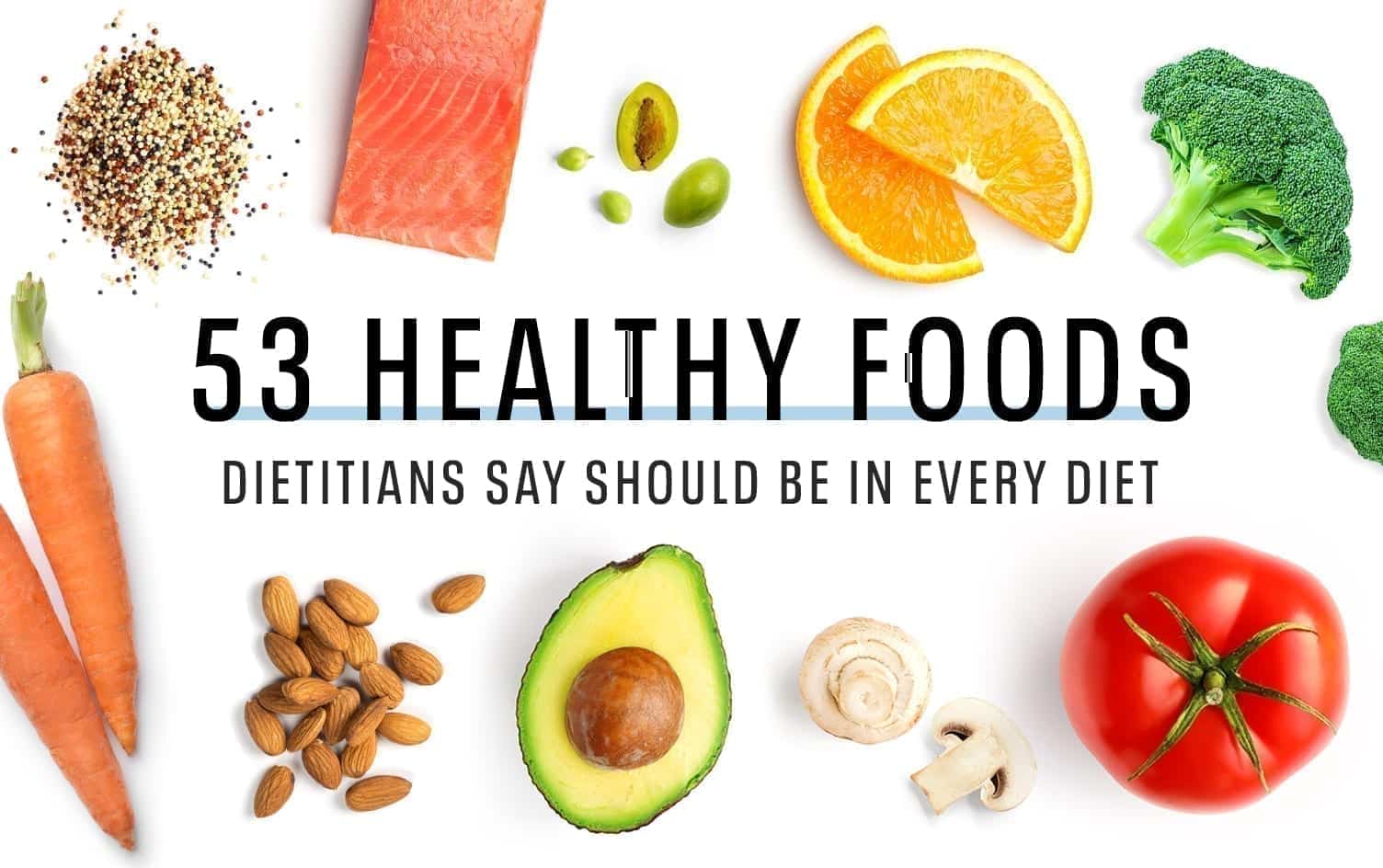With countless food choices, competing information, endless marketing and a new fashionable diet seemingly every month, trying to eat healthy can feel overwhelming. But the core tenets of nutrition remain the same: Eat a wide variety of real foods, and try to match your portions and calories to your body’s individual needs.
It sounds easy, but in practice, we all know staying on course can be difficult. So, while no one needs pizza or ice cream or wine, treating yourself to your favorite foods and beverages on occasion can actually be helpful to your overall diet. “It’s clear that what we restrict, we will crave and likely binge,” says Melissa Macher, RD. Instead of restricting yourself, go ahead and enjoy the occasional treat when it sounds good. Doing so is better for your mental health, and can also help you stay on track with a healthy, long-term eating plan. That said, there are plenty of healthy, great-tasting foods to consider as the foundation of your diet.
53 FOODS DIETITIANS LOVE
We enlisted several top dietitians to share some of their favorite healthy foods, covering a range of categories, from proteins and vegetables to on-the-go snacks. Some are great for weight loss, others are packed with nutrients and fiber, and all can easily be added to your diet.
You don’t have to eat all of these foods to be healthy, but the more the merrier. So, the next time you go shopping for groceries, add some of these dietitian-approved selections to your basket.
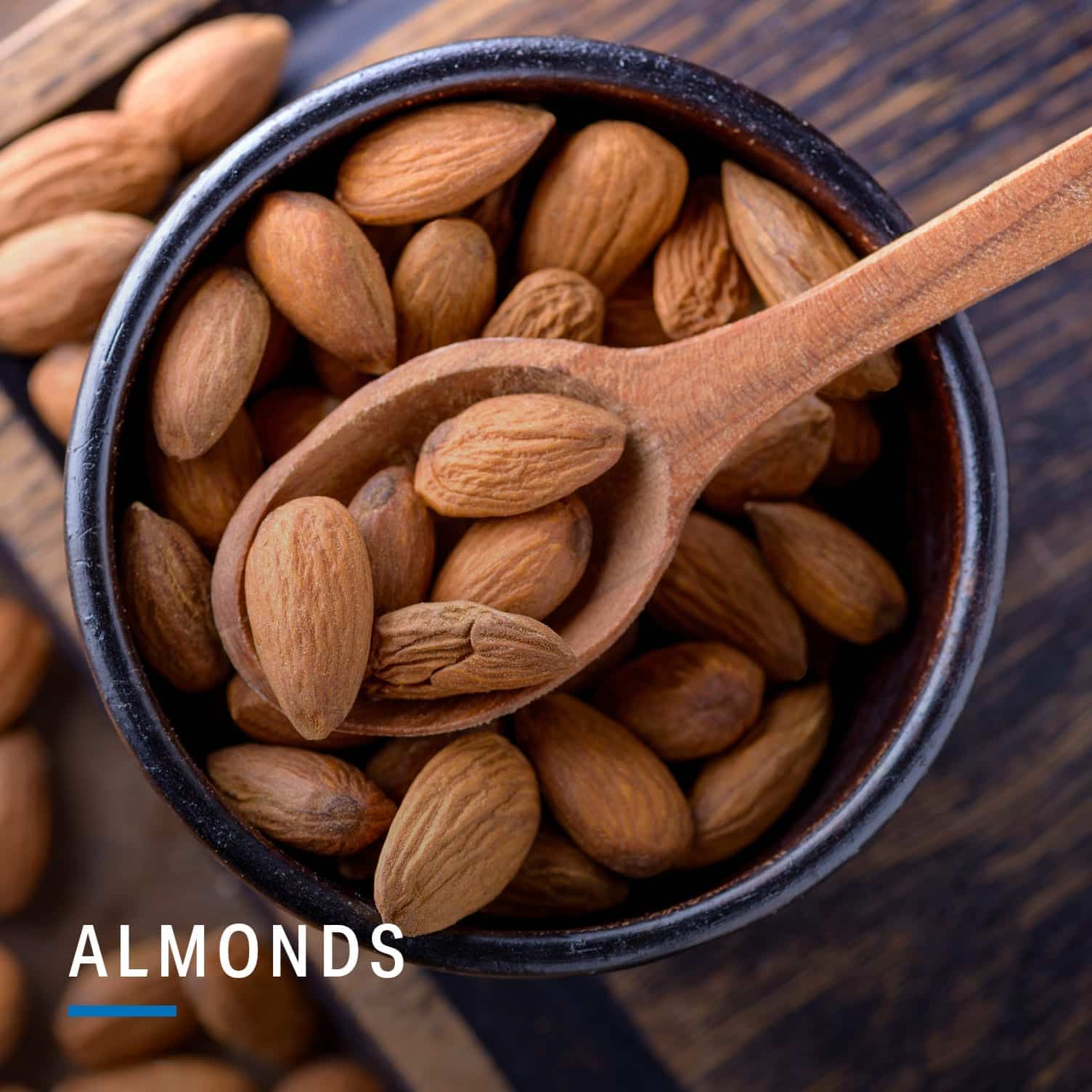
“With soluble fiber and healthy fat, almonds are a nutrient-rich option for a snack to help keep you satisfied for hours.”
— Amy Goodson, MS, RD, a board-certified specialist in sports dietetics
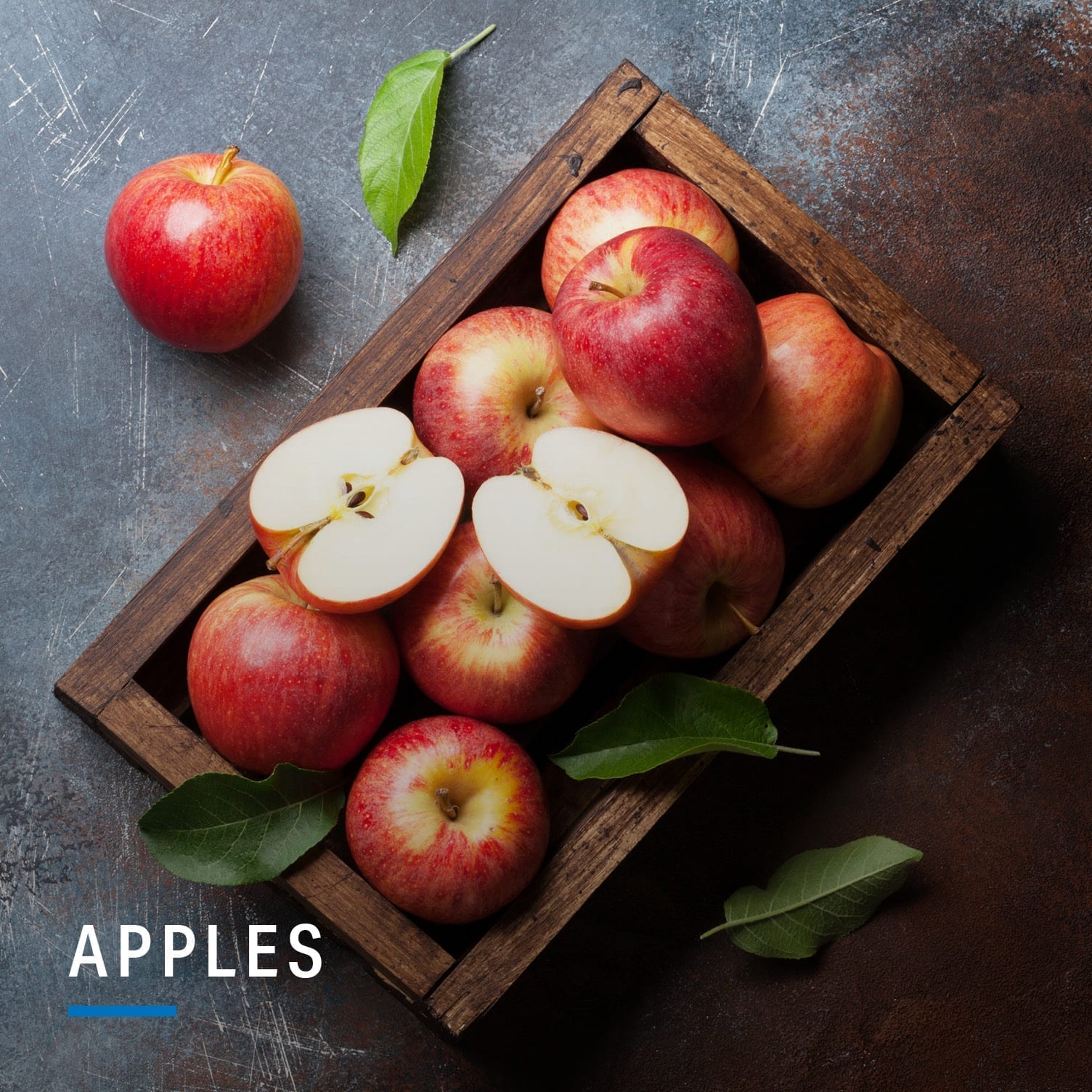
“Apples are perfect, portable packages of fiber, vitamin C and many other immune-supportive flavonols. The saying, ‘an apple a day keeps the doctor away,’ has some scientific backing due to the way that apples support gut health and therefore immune health. They are typically available all year long in a multitude of varieties to suit any preference. Eat them whole, including the skin for the most benefit.”
— Liz Wyosnick, MS, RDN, and owner of Equilibriyum in Seattle
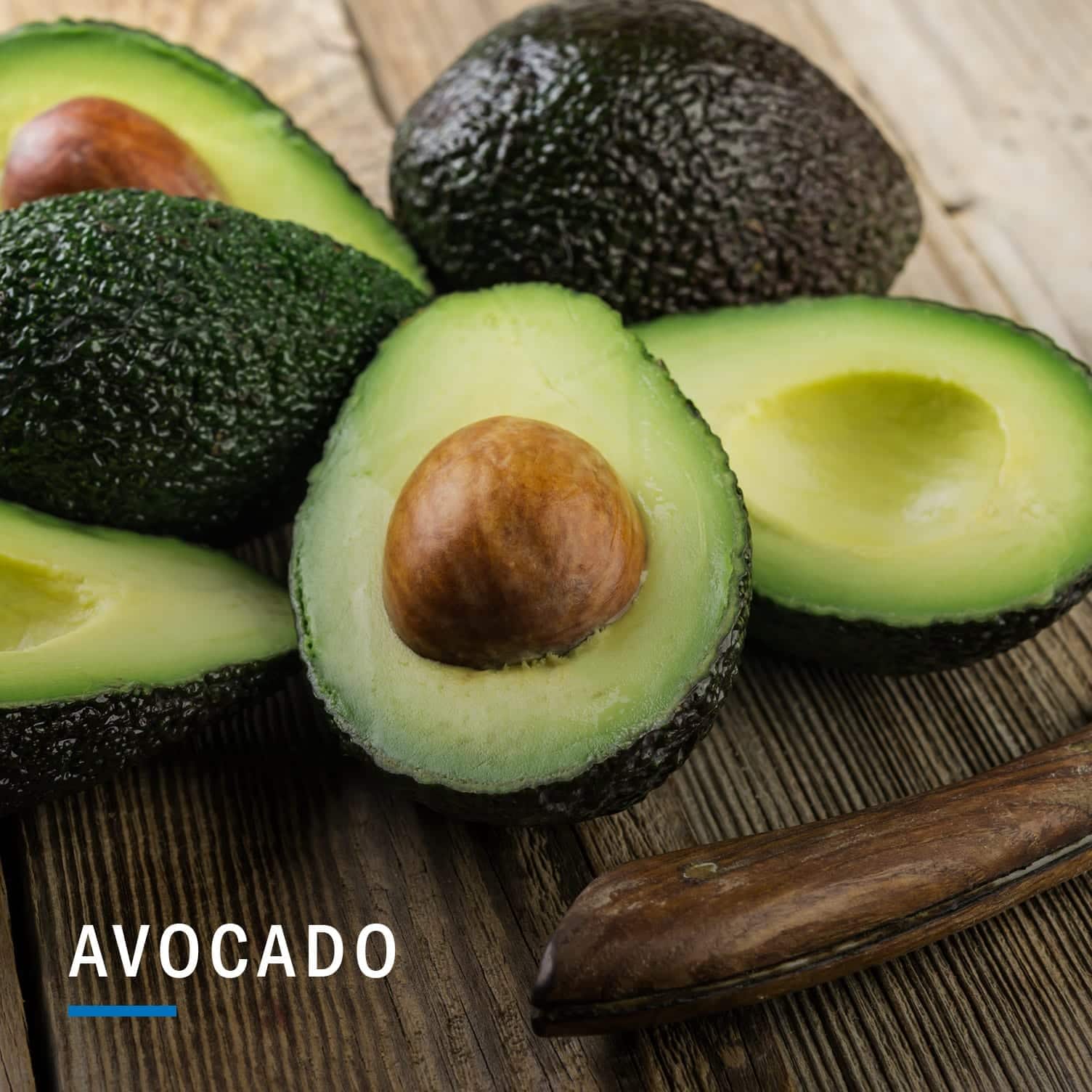
“Plant-based fats are generally high in unsaturated fats, which can be protective of your cardiovascular system including your heart and brain. Adding avocado to your salad can be a great way to add in plant-based fats.”
— Macher
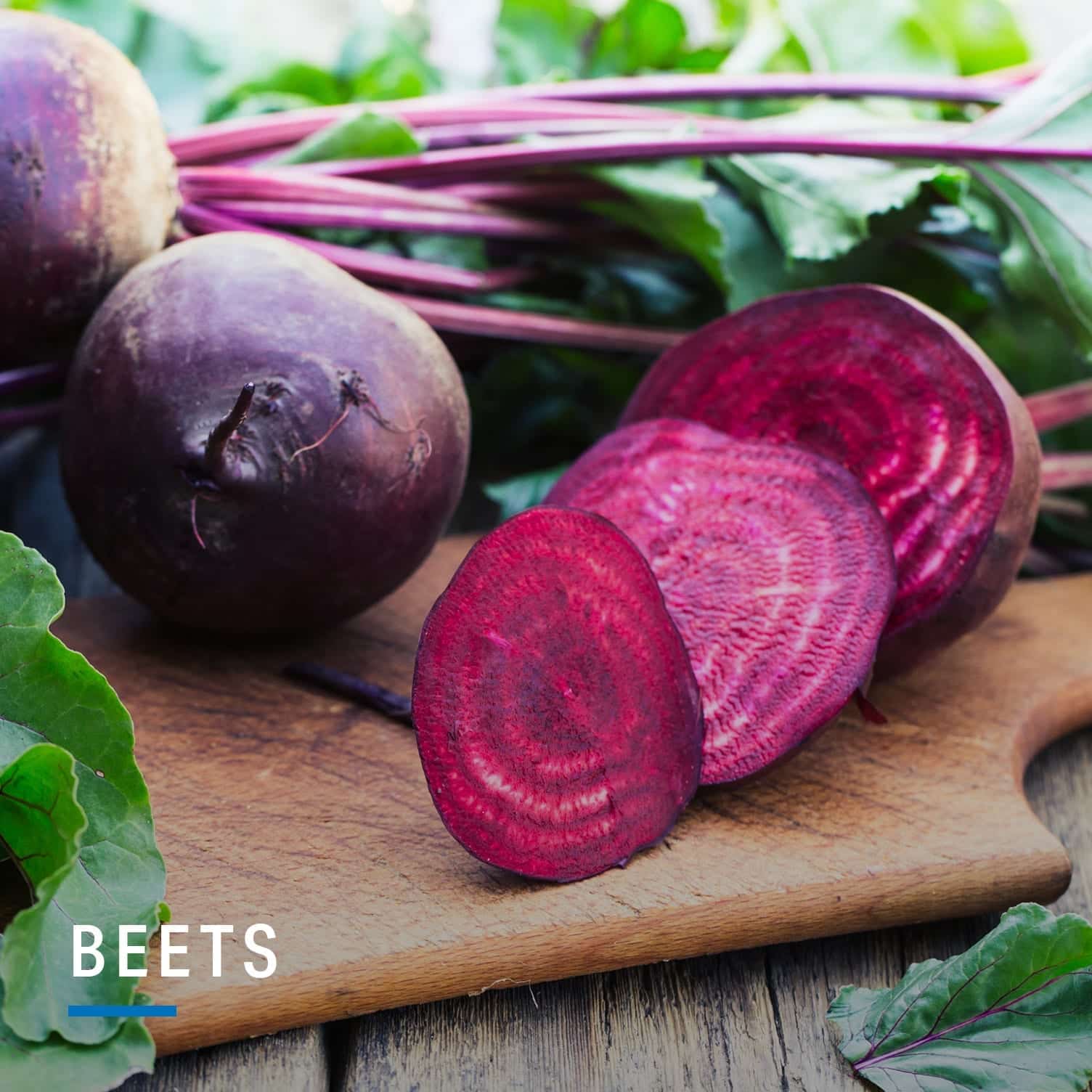
“Beets are very high in natural nitrates that convert to nitric oxide within the body and assist vasodilation, which means relaxed blood vessels and better blood flow. These benefits make beets particularly beneficial for those with high-blood pressure and athletes. Beets are also very high in fiber.”
— Wyosnick
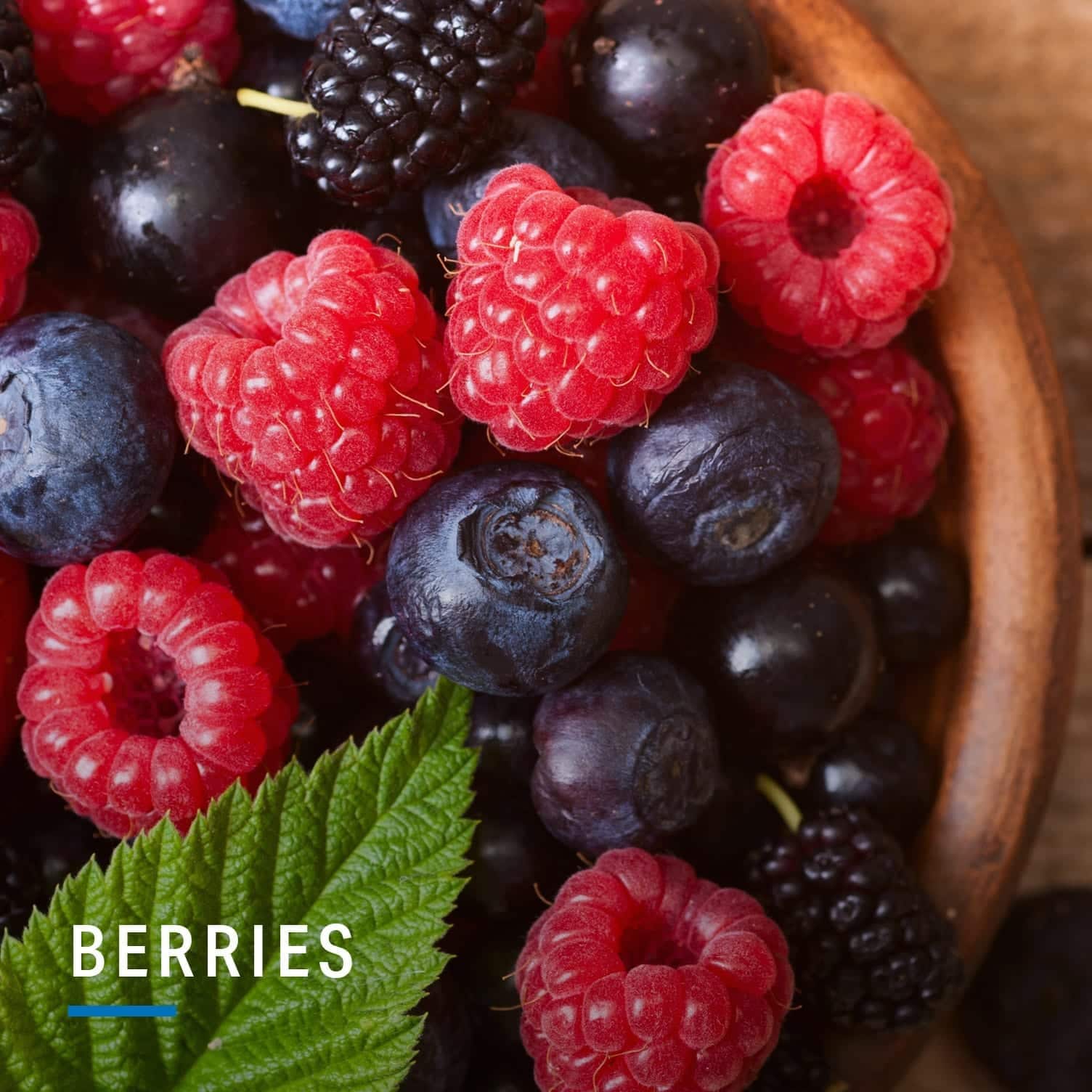
“High in antioxidants and fiber, berries help contribute to good heart health and immune health.”
— Goodson
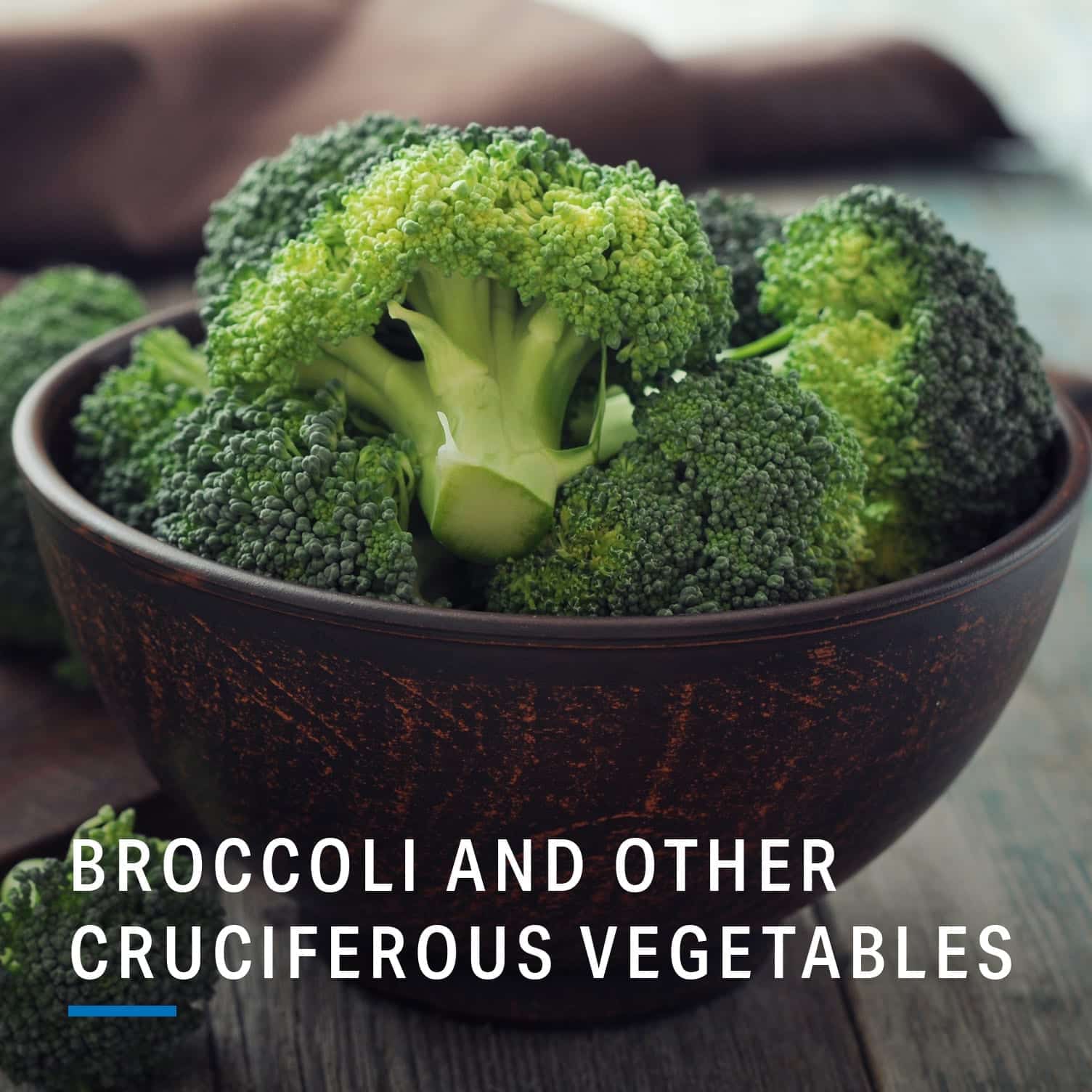
“High-sulfur vegetables such as broccoli, Brussels sprouts and cauliflower help to enhance the natural detoxification function of the liver. The unique plant compounds (glucosinolates) in these vegetables can up-regulate the recycling and ridding of toxins we may be exposed to.”
— Wyosnick
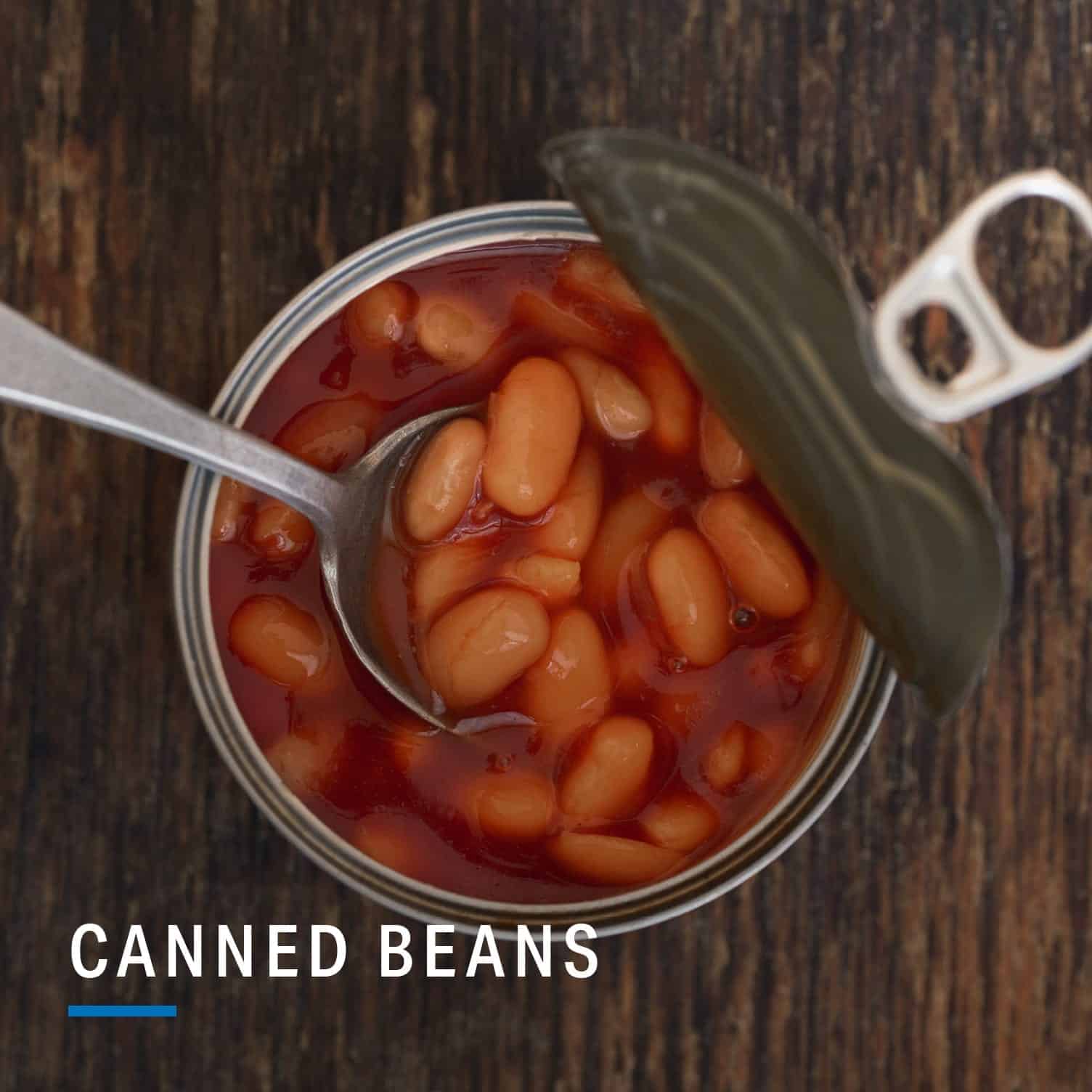
“Canned beans, such as black, kidney and garbanzo, are high in fiber so they fill you up, not out.”
— Leslie Bonci, MPH, RD, owner of Active Eating Advice
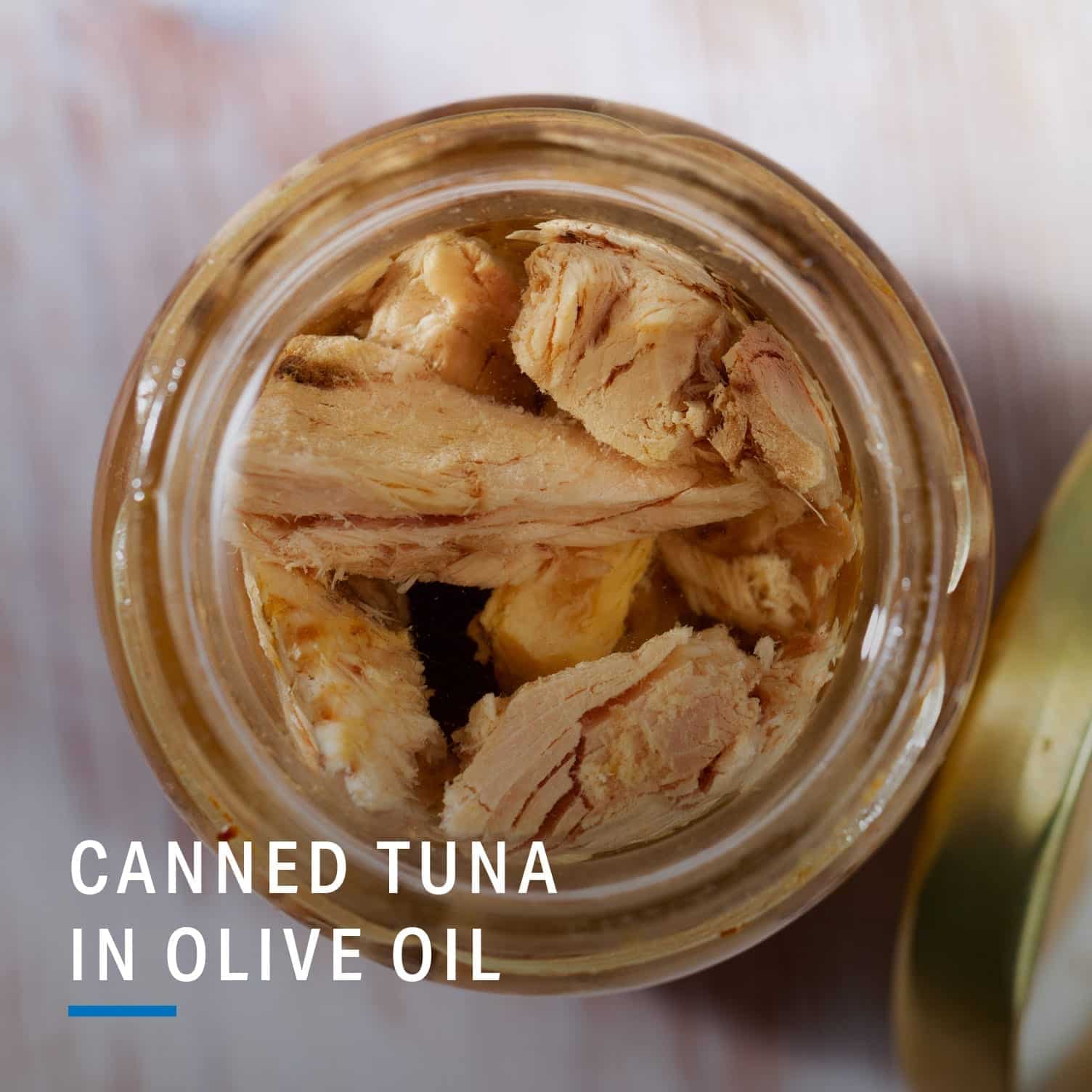
“Even though it has more fat than water-packed tuna, it also adds more flavor, so you don’t need to add as much mayo. And with 21 grams of protein for a small can, it’s a protein-palooza.”
— Bonci
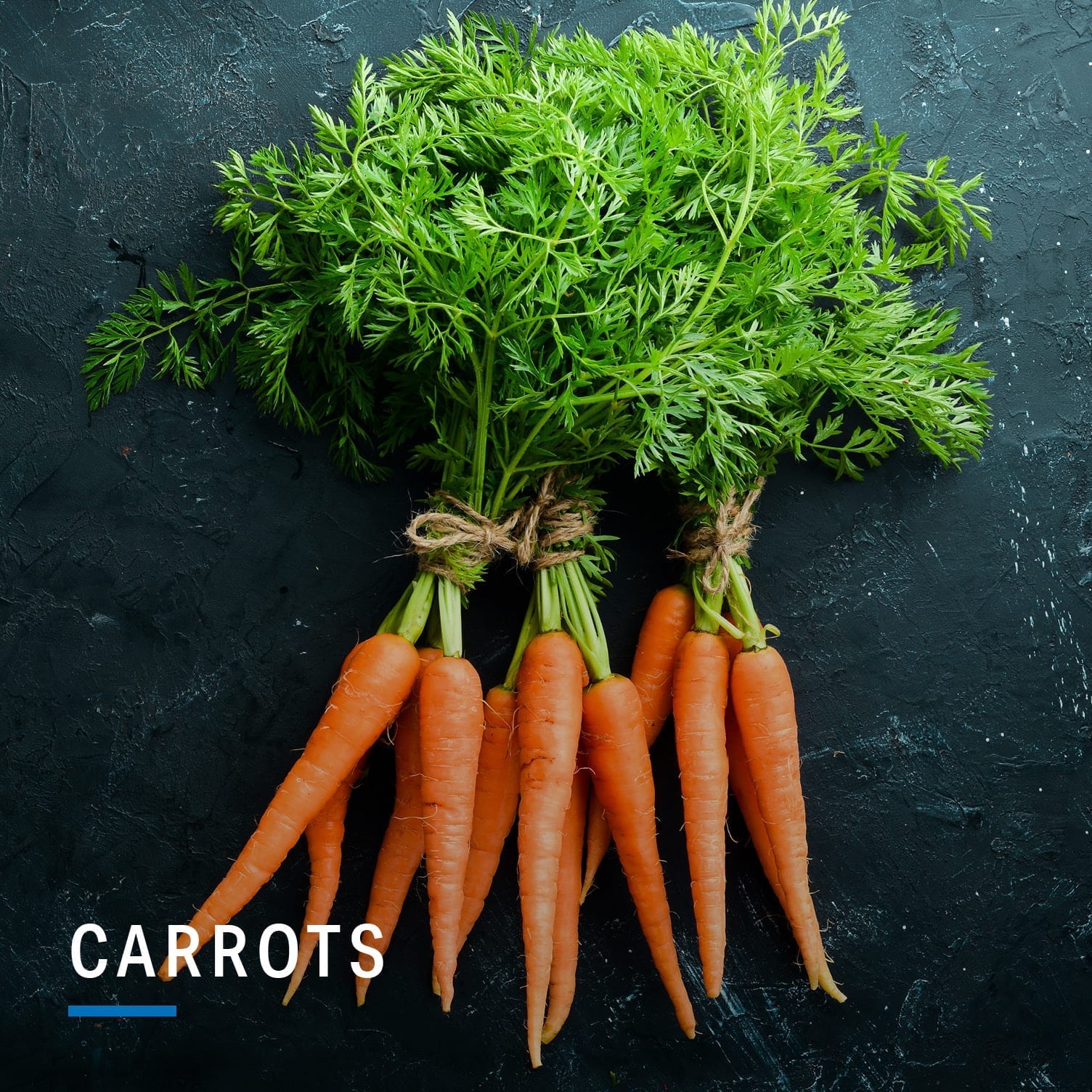
“We get a nice dose of vitamin A from orange vegetables such as sweet potatoes and carrots.”
— Macher
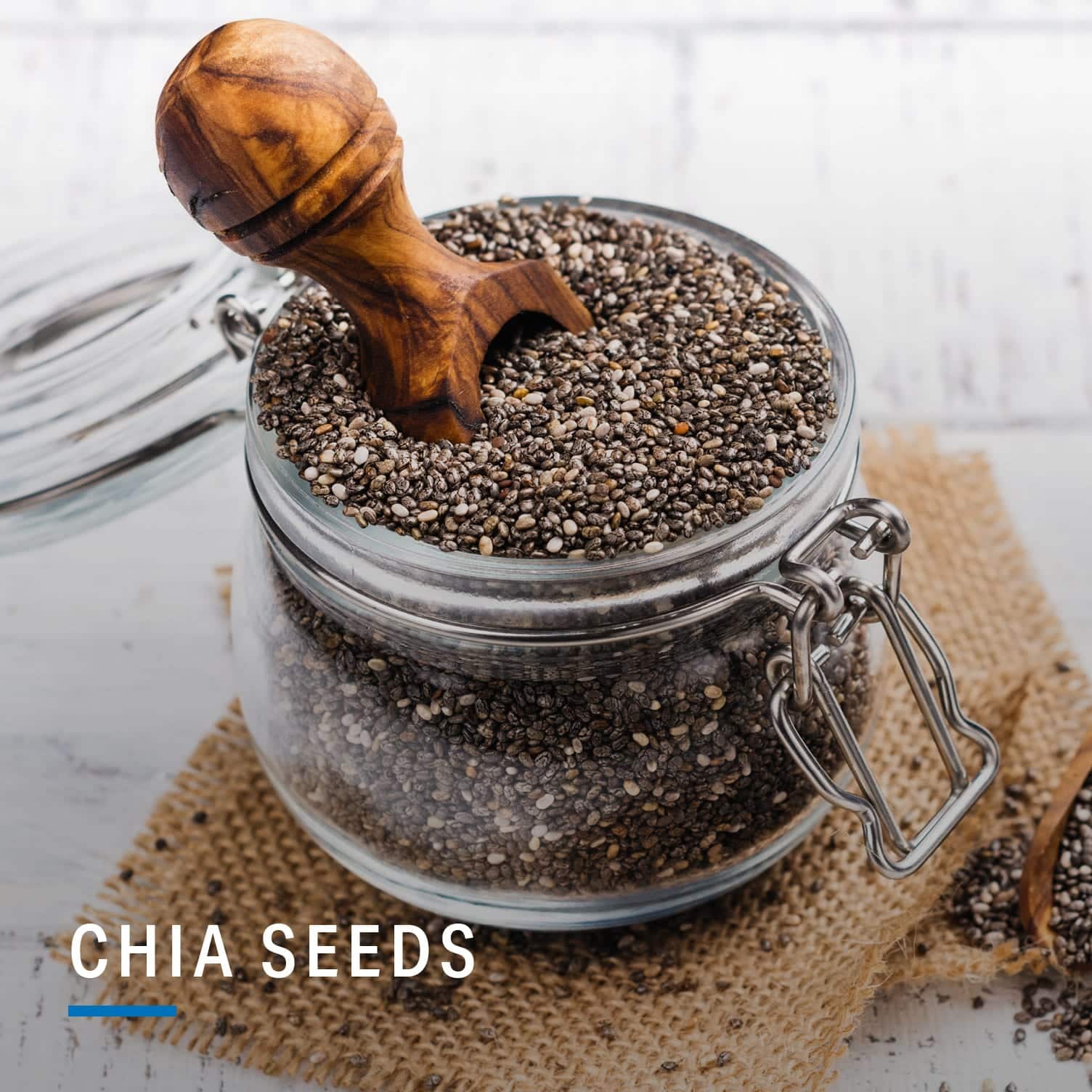
“Chia seeds are one of the most fiber-dense foods, and when they are hydrated with water, they form a gelatinous mass that assists GI regularity. A sprinkle of chia seeds is an easy add to many meals including oatmeal, yogurt, peanut butter toast, salad dressings and even soups. Chia seed pudding is a refreshing snack that can assist occasional constipation.”
— Wyosnick
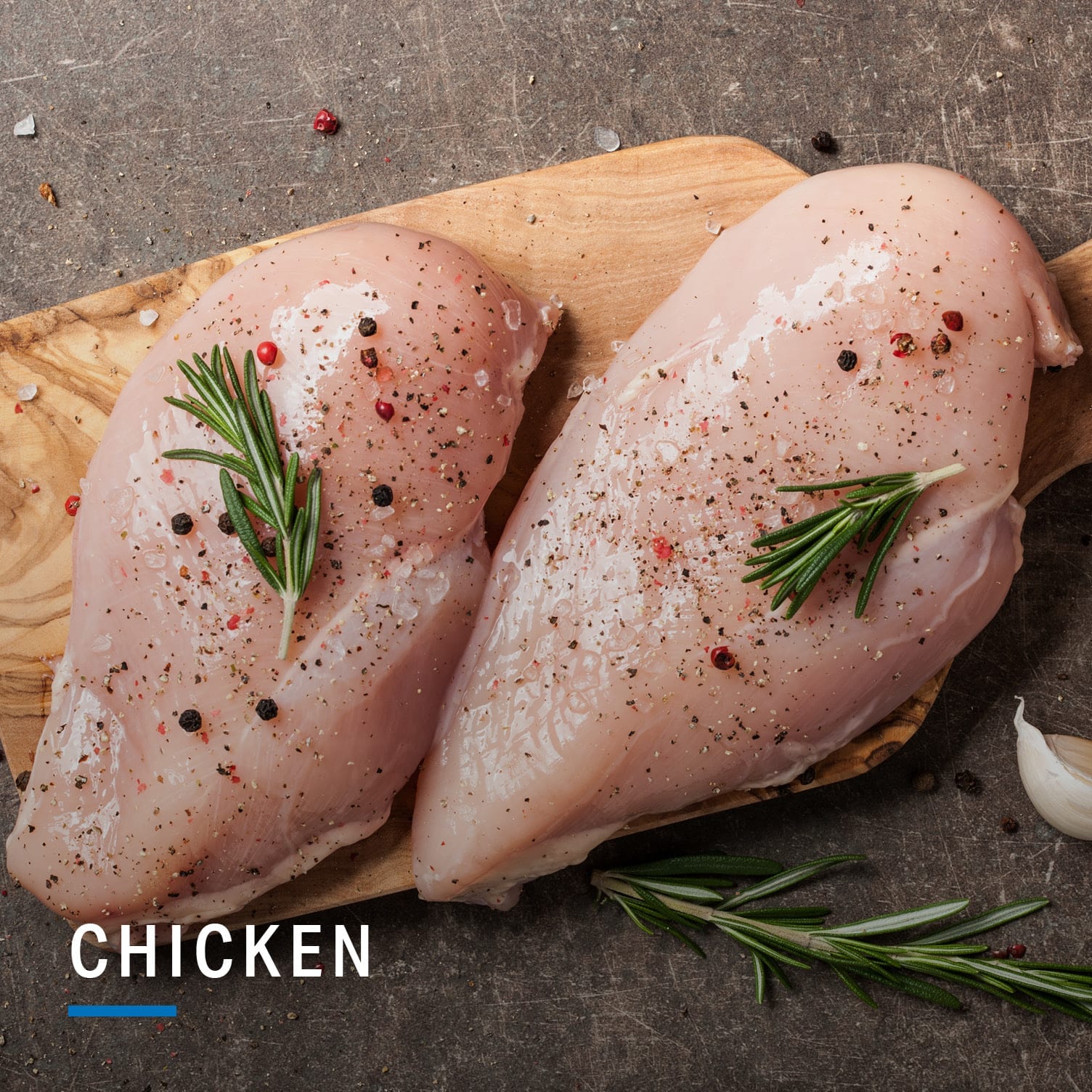
“Chicken without the skin is a great source of lean, high-quality protein, especially when baked, broiled, grilled or sautéed.”
— Goodson
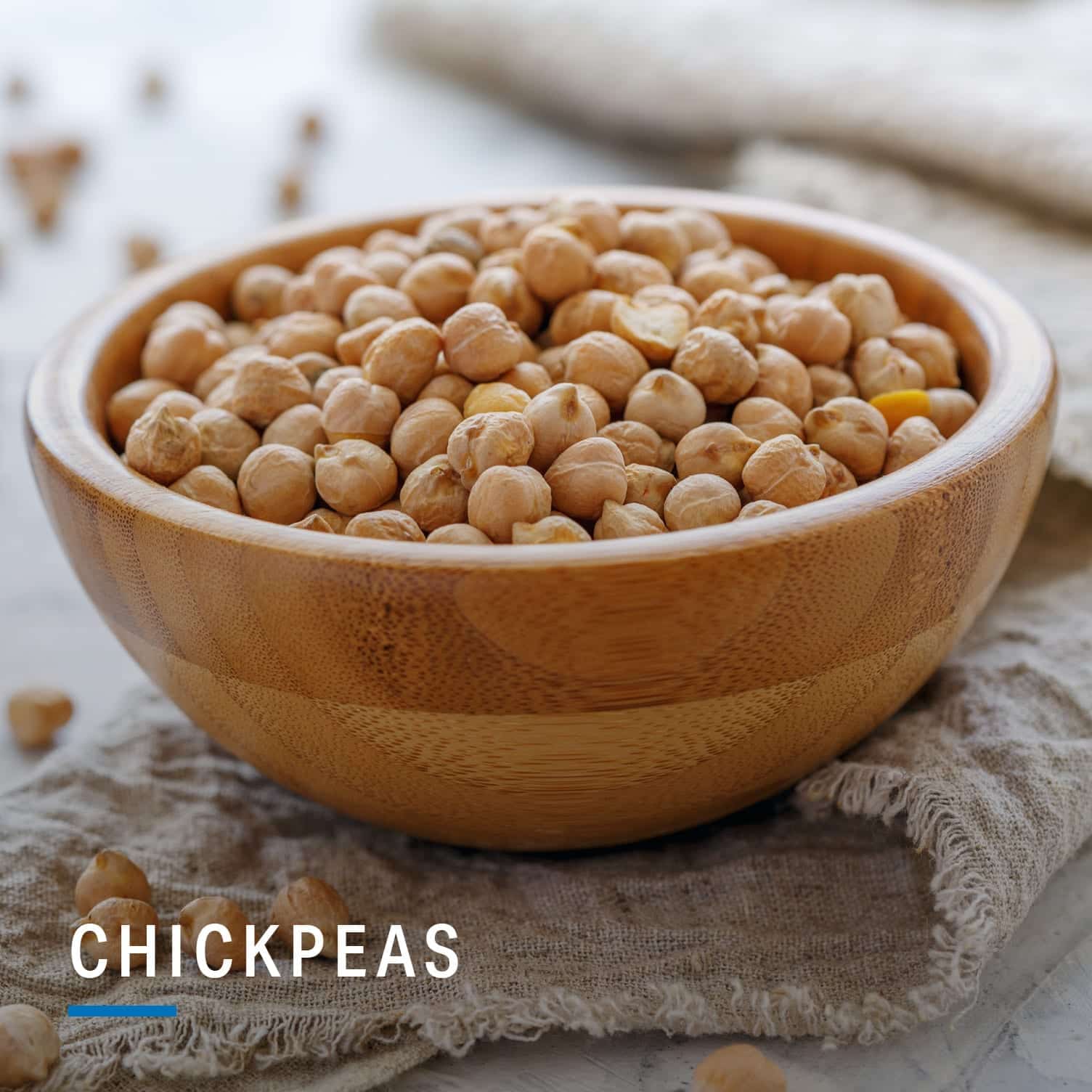
“Chickpeas are a great weight-loss food because they contain both protein and fiber, which are nutrients that help keep your appetite under control. In one study, people who added about a 1/2 cup of chickpeas to their diet for 12 weeks ate less from other food groups with an especially noticeable drop in the amount of grains they were consuming. The study participants also reported feeling more satiated when eating chickpeas.”
— Samantha Cassetty, MS, RD, a New York City-based nutrition and wellness expert and co-author of “Sugar Shock”
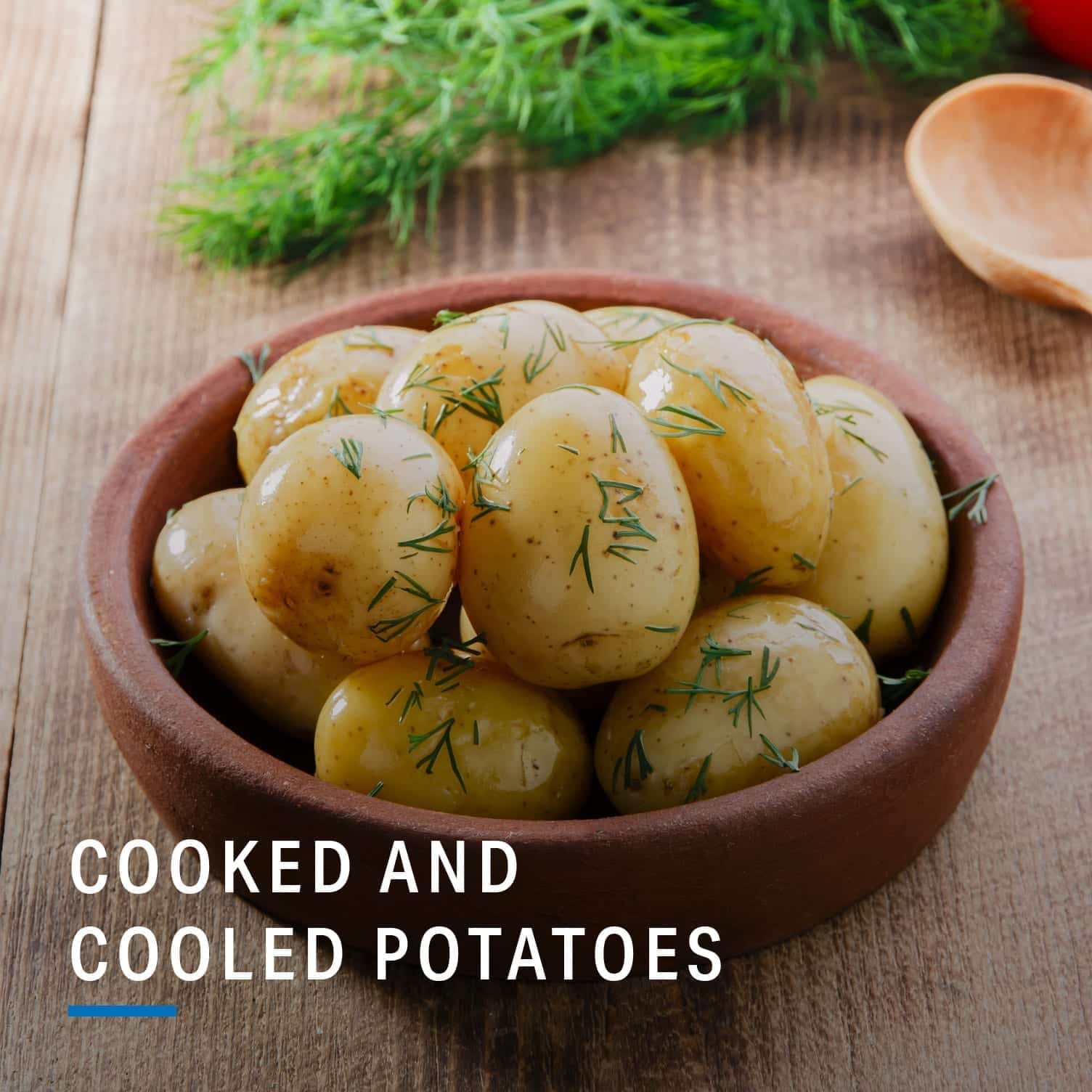
“When potatoes are cooked, cooled and reheated, a type of fiber-resistant starch is formed. This fiber lowers the glycemic impact of the potato and provides prebiotic fiber to feed the beneficial bacteria of the gut microbiome. This is reason enough to batch cook potatoes and then reheat them for meals later.”
— Wyosnick
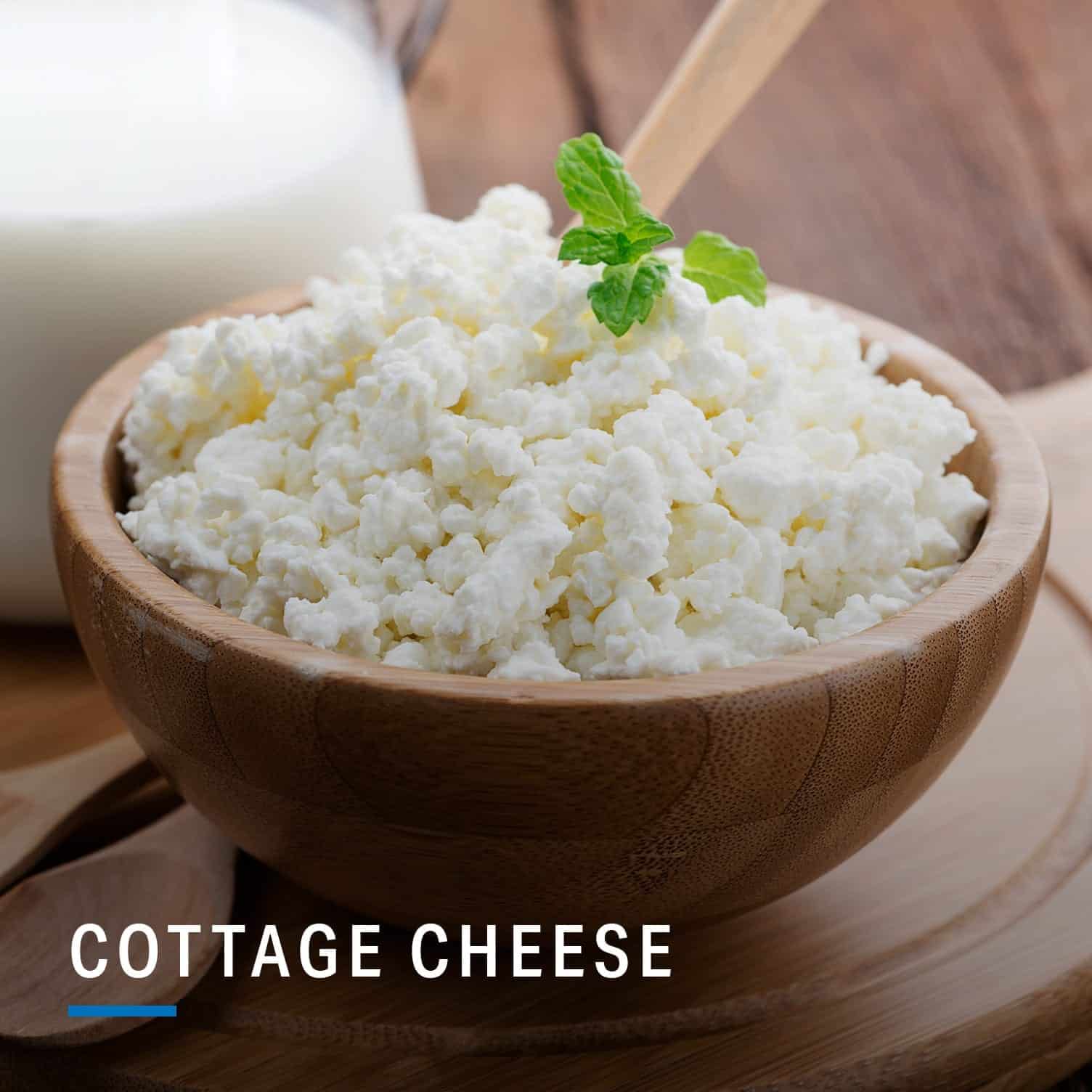
“[Cottage cheese is] packed with protein for the filling factor, and it blends well with savory vegetables or sweet fruit.”
— Bonci
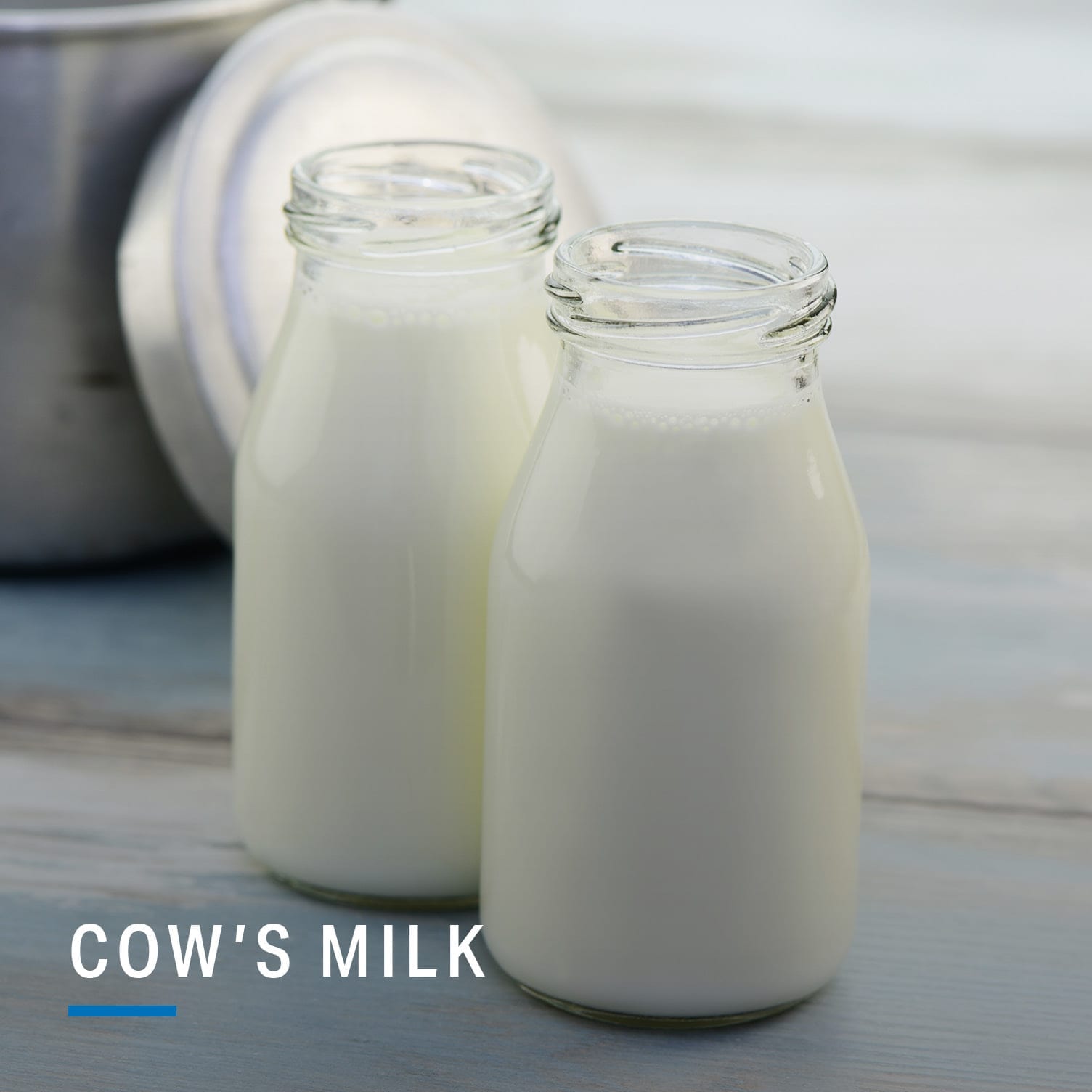
“Milk contains nine essential nutrients, including calcium, vitamin D and potassium, which are three of the nutrients of concern for Americans.”
— Goodson
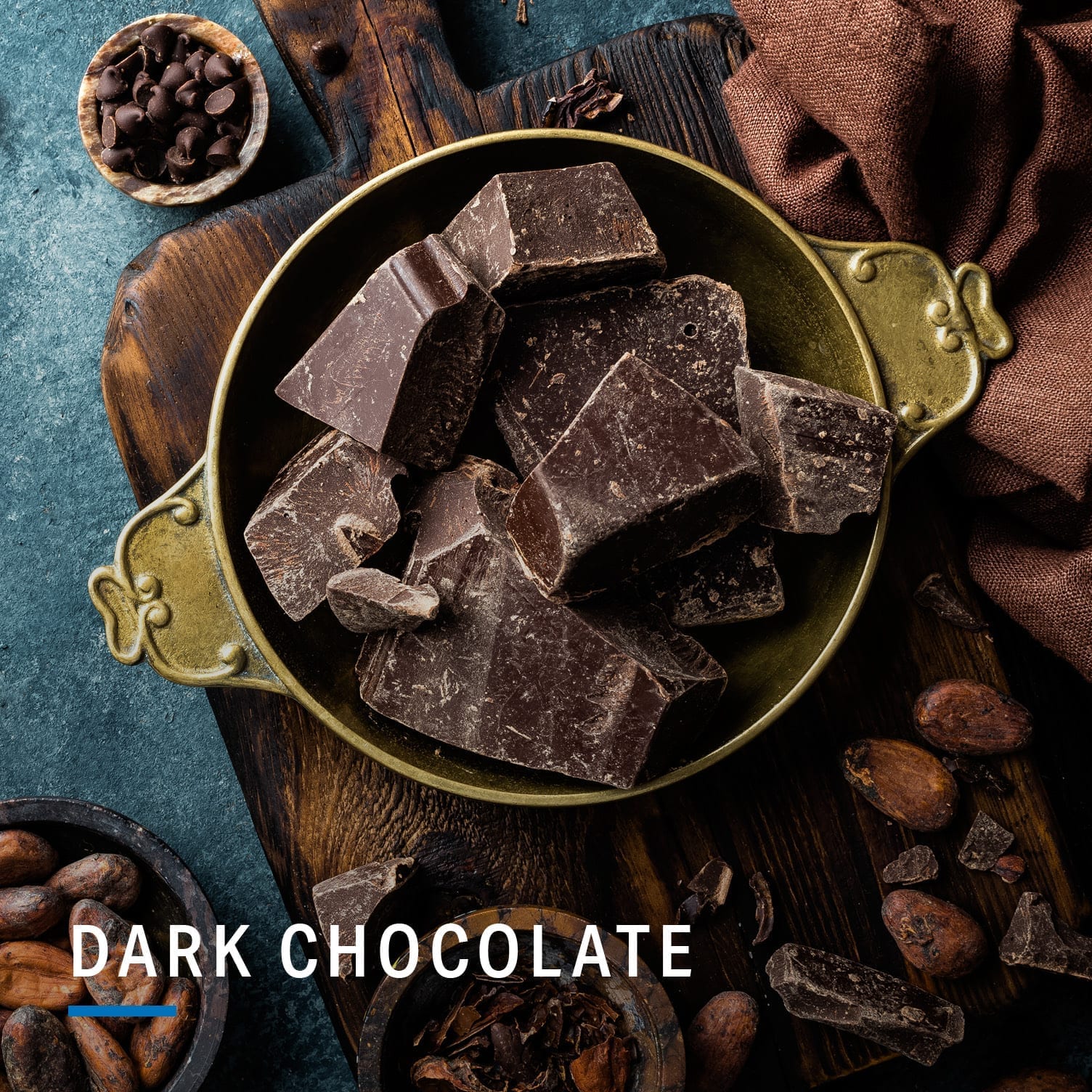
“Even when you’re trying to lose weight, I think it’s important to include the foods you love. It’s not sustainable or healthy to restrict yourself from eating your favorite foods. Dark chocolate is a great choice because, not only is it delicious, but it also contains antioxidants and a good amount of magnesium, which is a mineral that is tied to mood regulation and sleep. Also, one study found that compared to an equal amount of milk chocolate, dark chocolate was more satisfying. When participants ate dark chocolate and were then allowed to eat any amount of pizza they wanted, they ate 17% less compared to when they were first given milk chocolate. And the dark chocolate also led to a reduction in cravings for other sweets.”
— Cassetty
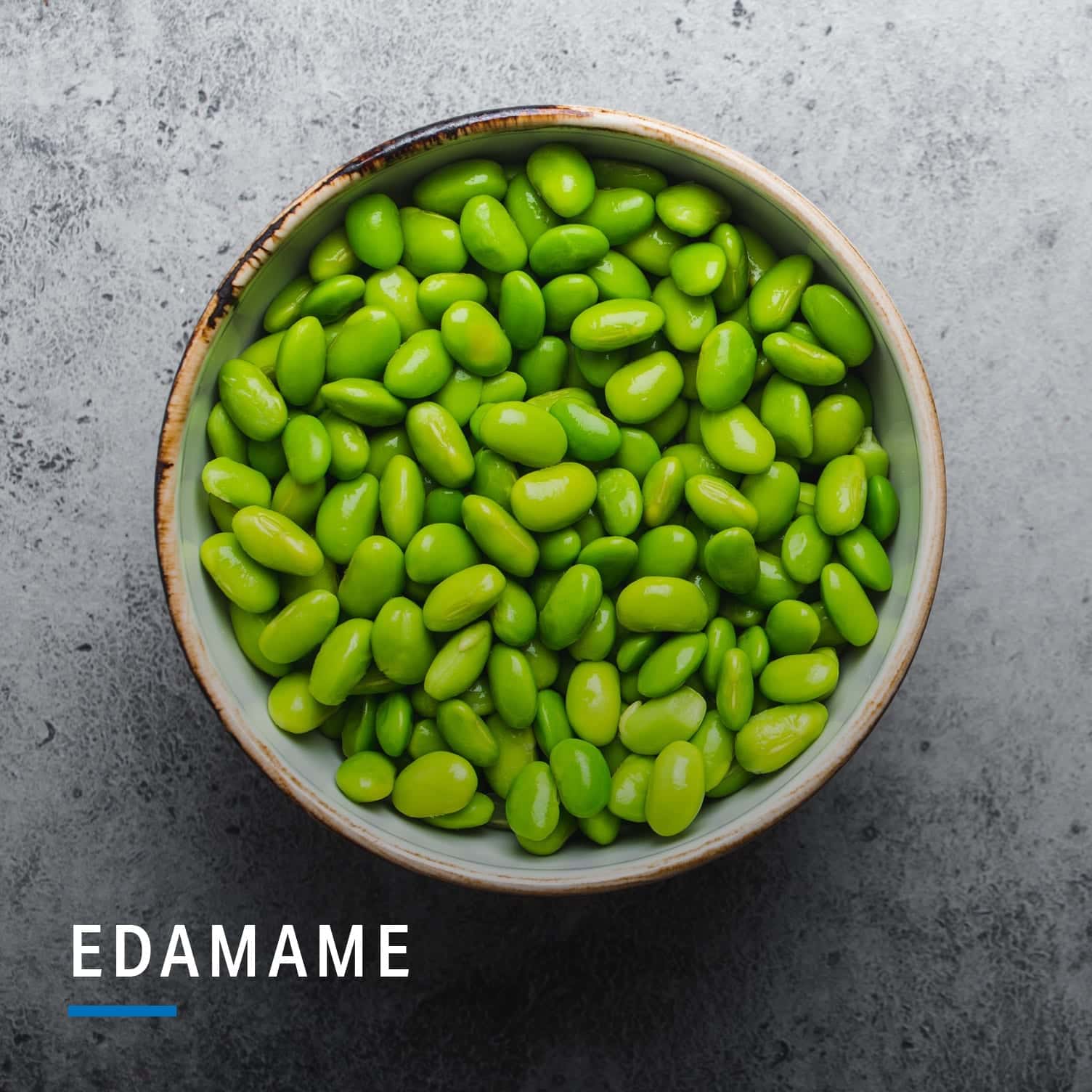
“The green edamame beans within pods are baby soybeans. Fully matured soybeans are black and may be found in the canned bean section. Both edamame and fully matured soybeans are rich sources of plant-based protein and unique in that they are a complete protein source, providing all essential amino acids. Although some controversy surrounds the safety of consuming soy, when it is eaten in an unprocessed, organic form (edamame, soybeans, tofu or tempeh), it is perfectly safe, very supportive to health, and not indicated as a ‘hormone disruptor or modulator.’ I love edamame in stir-fries or on top of a grain and green salad.”
— Wyosnick
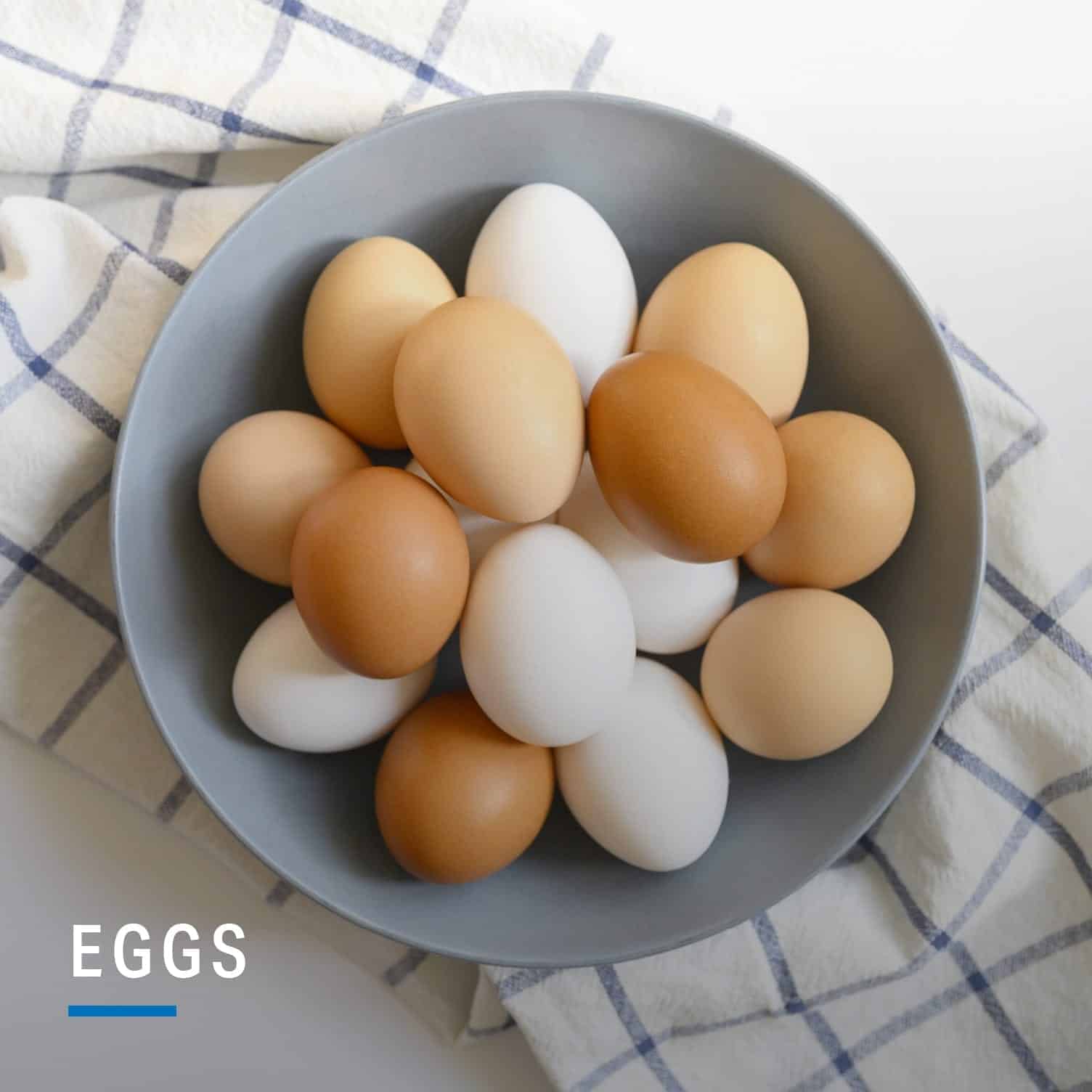
“Eggs are one of the top sources of choline, an important nutrient for brain health and metabolism. Note that choline is a fat-soluble compound, so eat the yolks! Adequate choline intake is particularly important for pregnant women because of its role in early brain development and gene expression.”
— Wyosnick
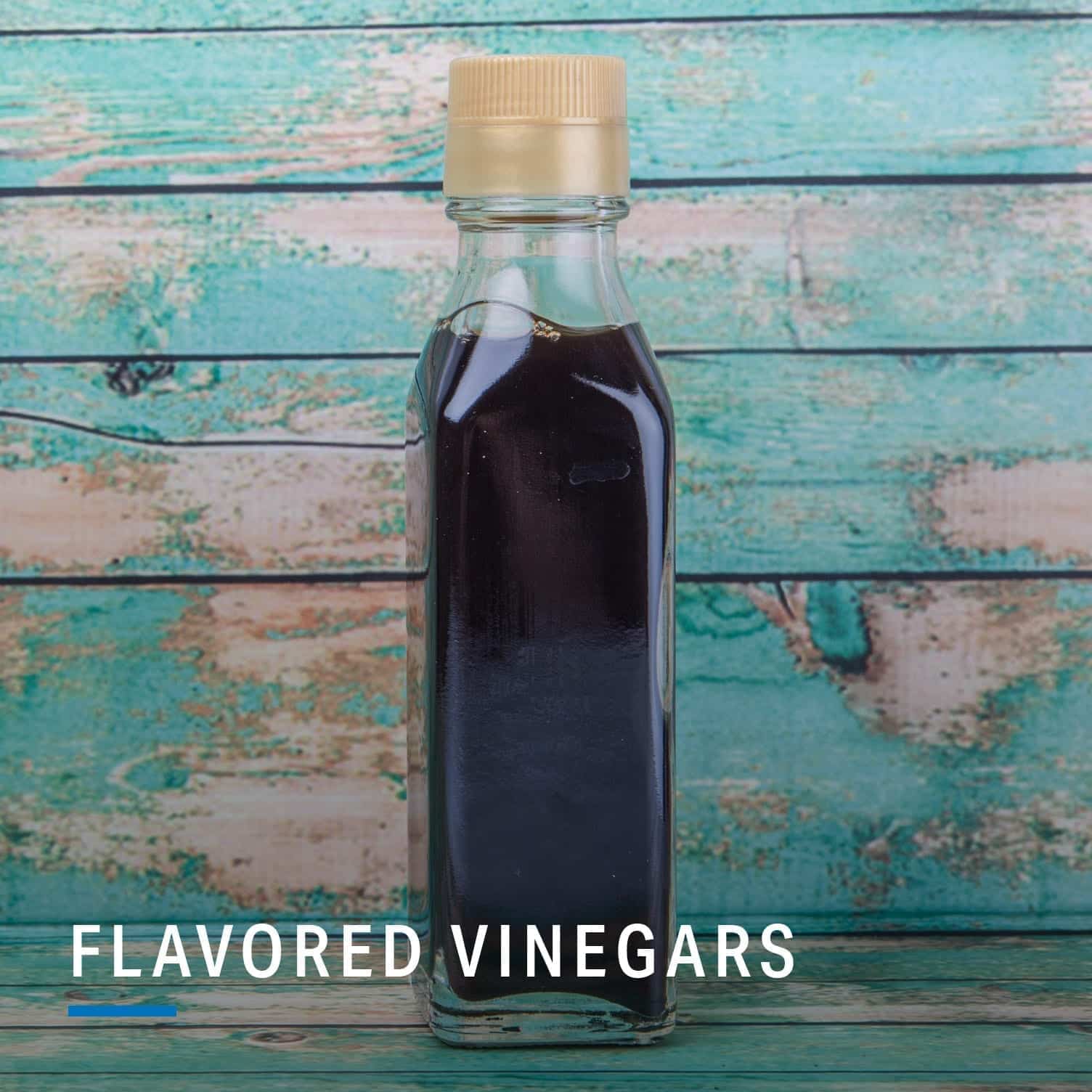
“These add a pow to the palate for minimal calories. Use them to jazz up greens, make a zesty marinade or even drizzle chocolate balsamic on strawberries.”
— Bonci
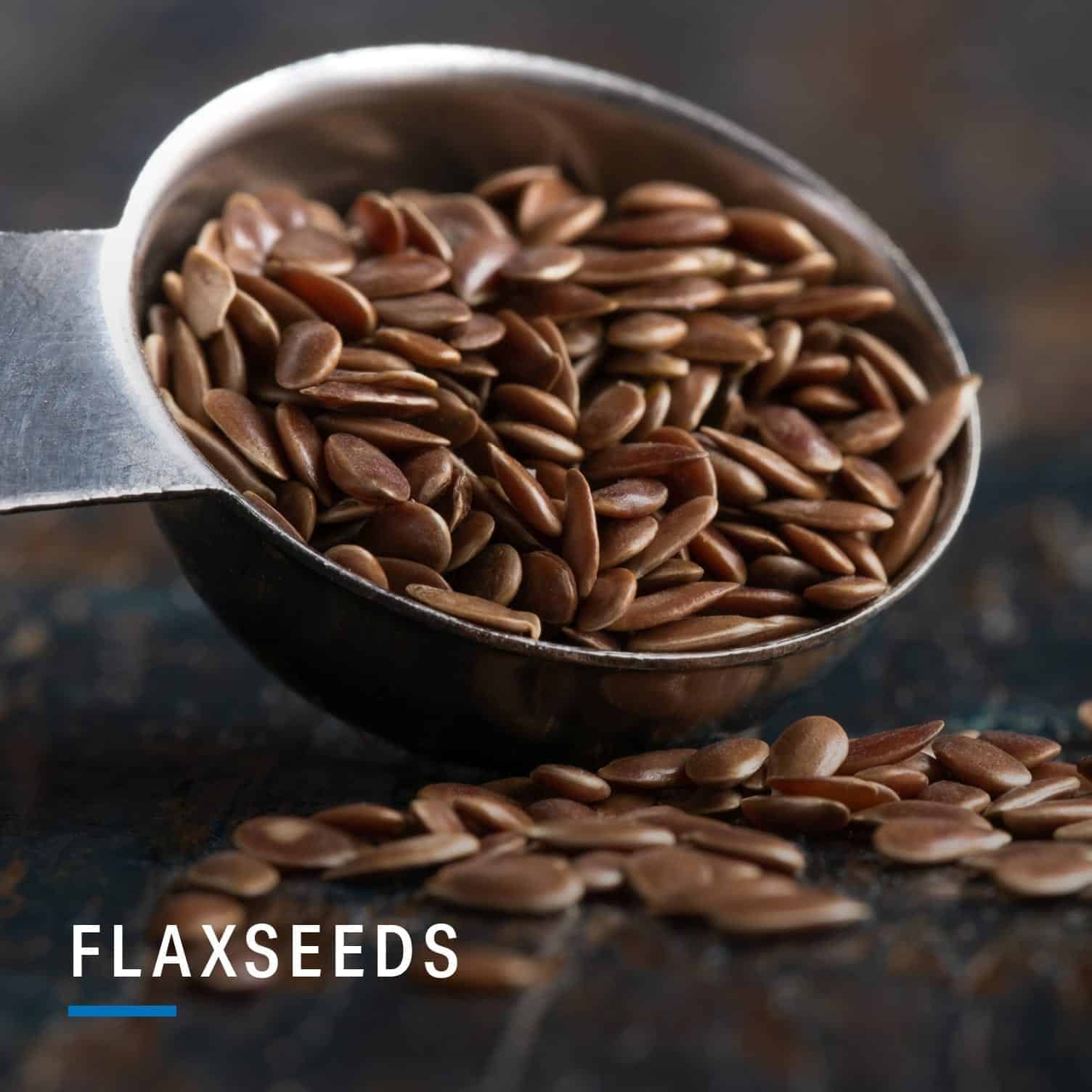
“Flaxseeds provide omega-3 fatty acids, fiber and protein, plus you can [incorporate] ground flax meal into different recipes.”
— Goodson
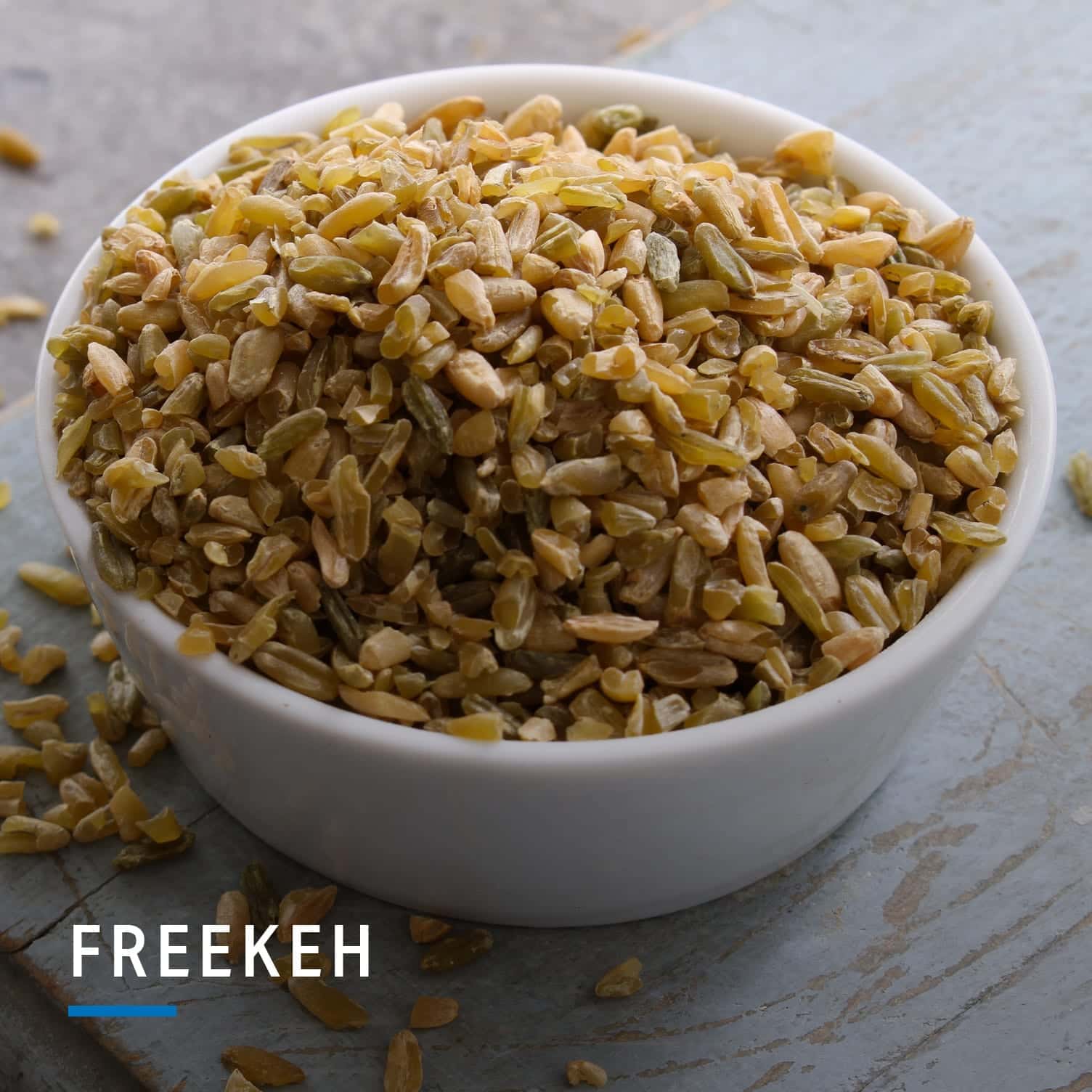
“Freekeh is an ancient grain that is a great source of fiber and protein. Its roasted, nutty flavor makes it a great pilaf dish, or it can be added to stews and salads.”
— Bonci
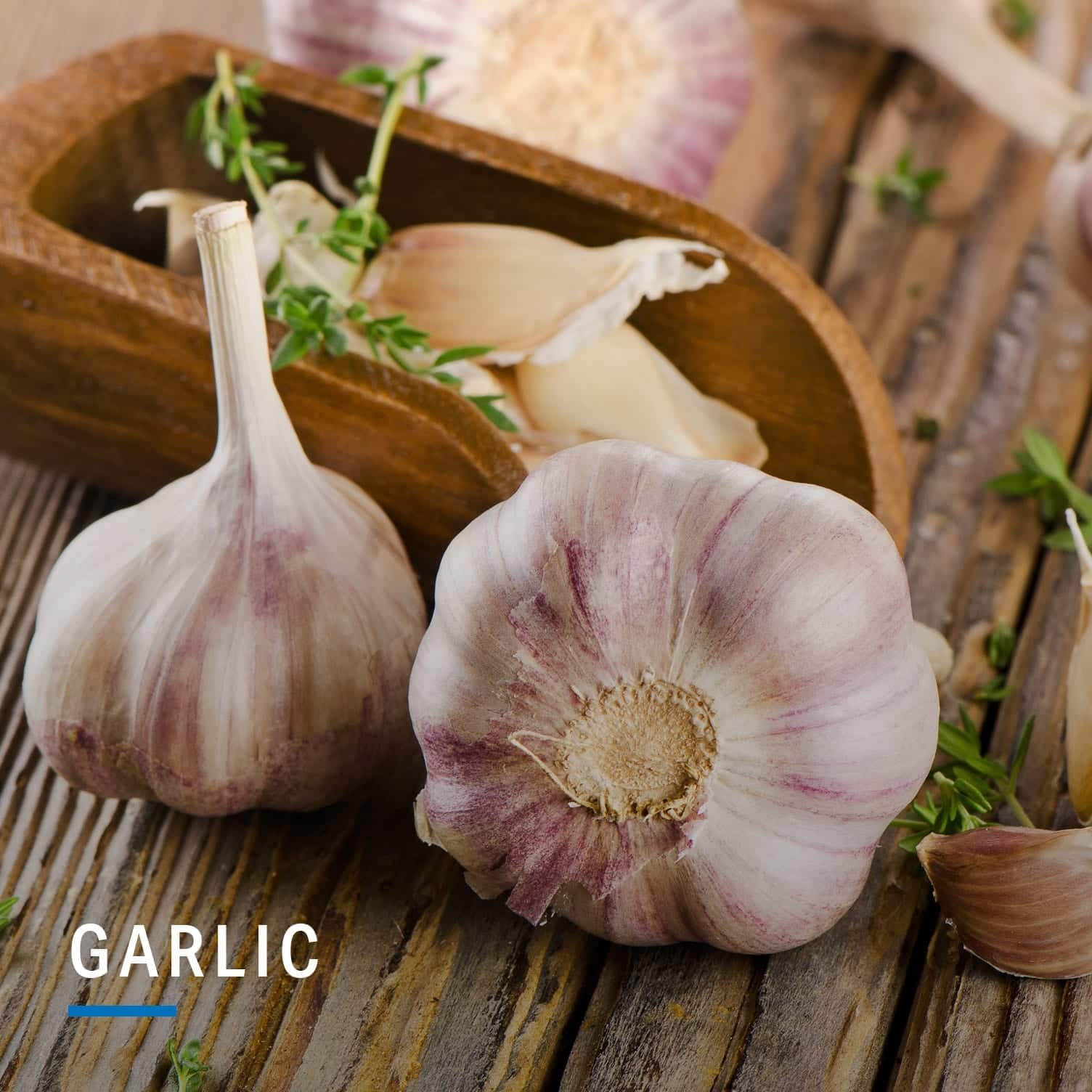
“Garlic is a great way to season foods without salt, and it has anti-inflammatory properties.”
— Goodson
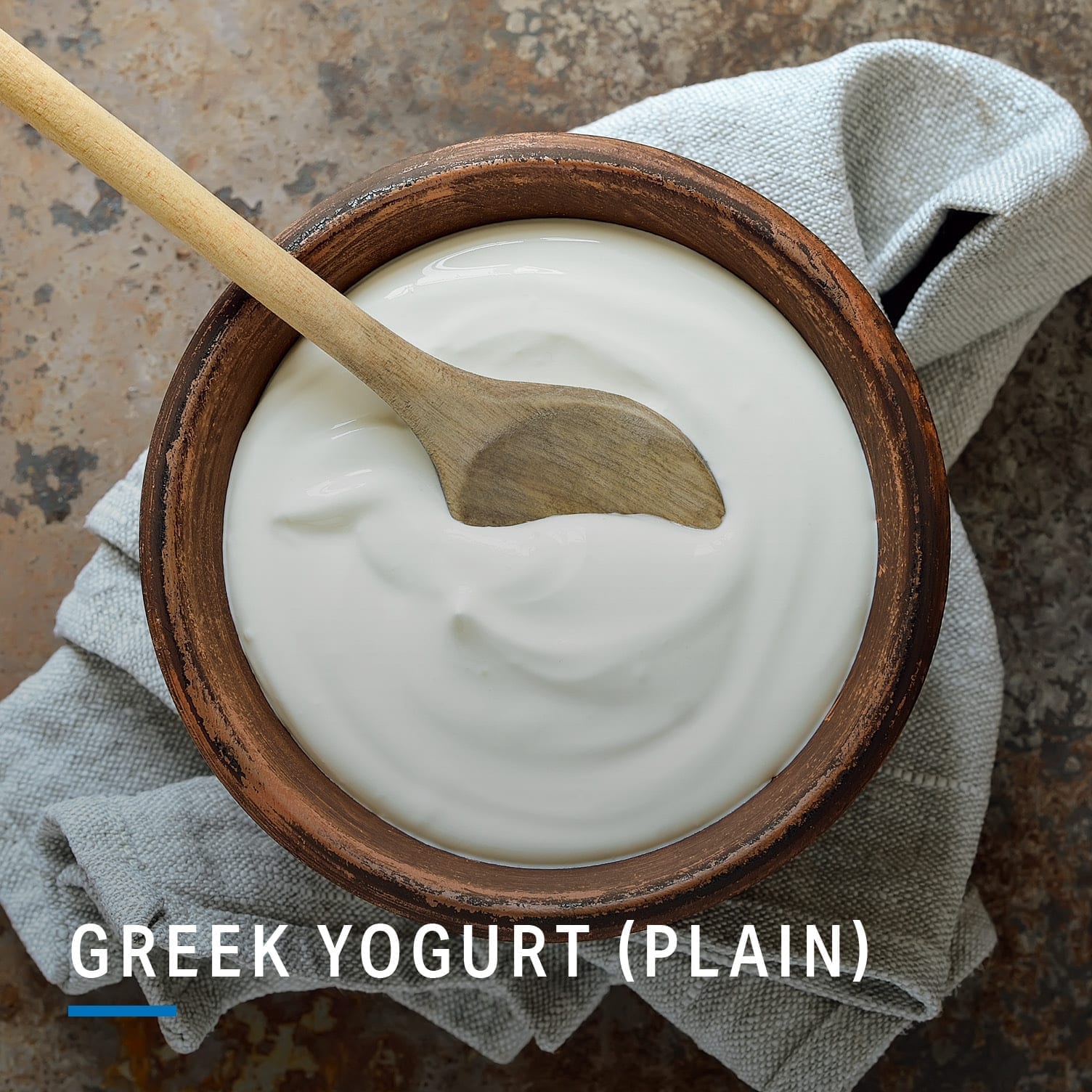
“Greek yogurt has a lot more protein than regular yogurt, which is one reason it’s an excellent choice if you’re looking to lose weight. Protein is a nutrient that helps you fill up, and it helps you maintain muscle, which is a calorie-burning tissue. When you’re trying to lose weight, you want to aim for fat-loss instead of muscle-loss, so it’s important to keep replenishing your supply of protein to maintain your muscle mass. Greek yogurt is a really convenient way to get this protein, and it’s also really versatile — you can use it in smoothies, overnight oats, parfaits and desserts, like frozen yogurt bark.”
— Cassetty
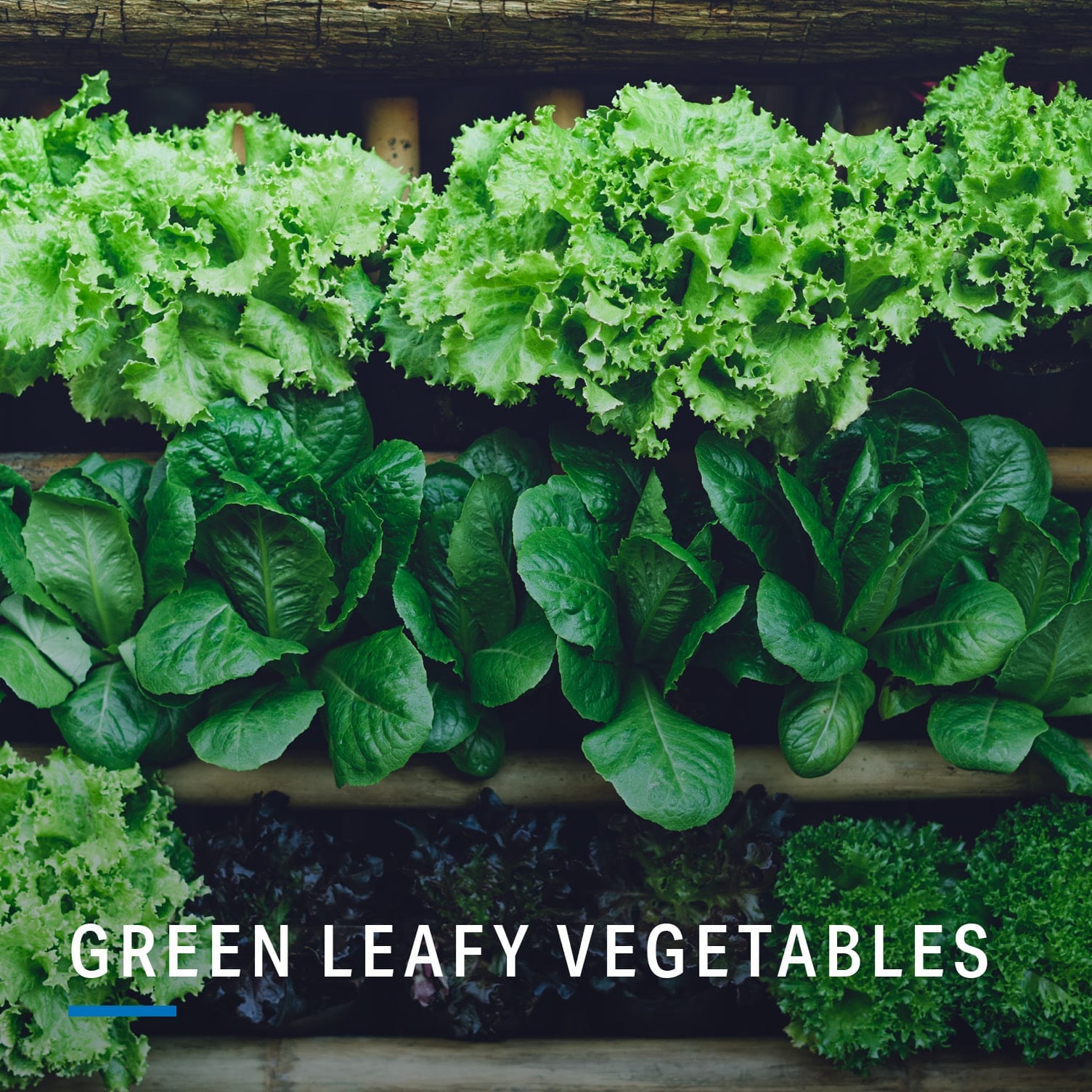
“Fruits and vegetables that include a variety of colors are important in your diet. No one food is better than another, because we need a variety of nutrients and no one food will provide that for us. For example, green leafy vegetables give us vitamin K, which helps with blood clotting and healthy bones.”
— Macher
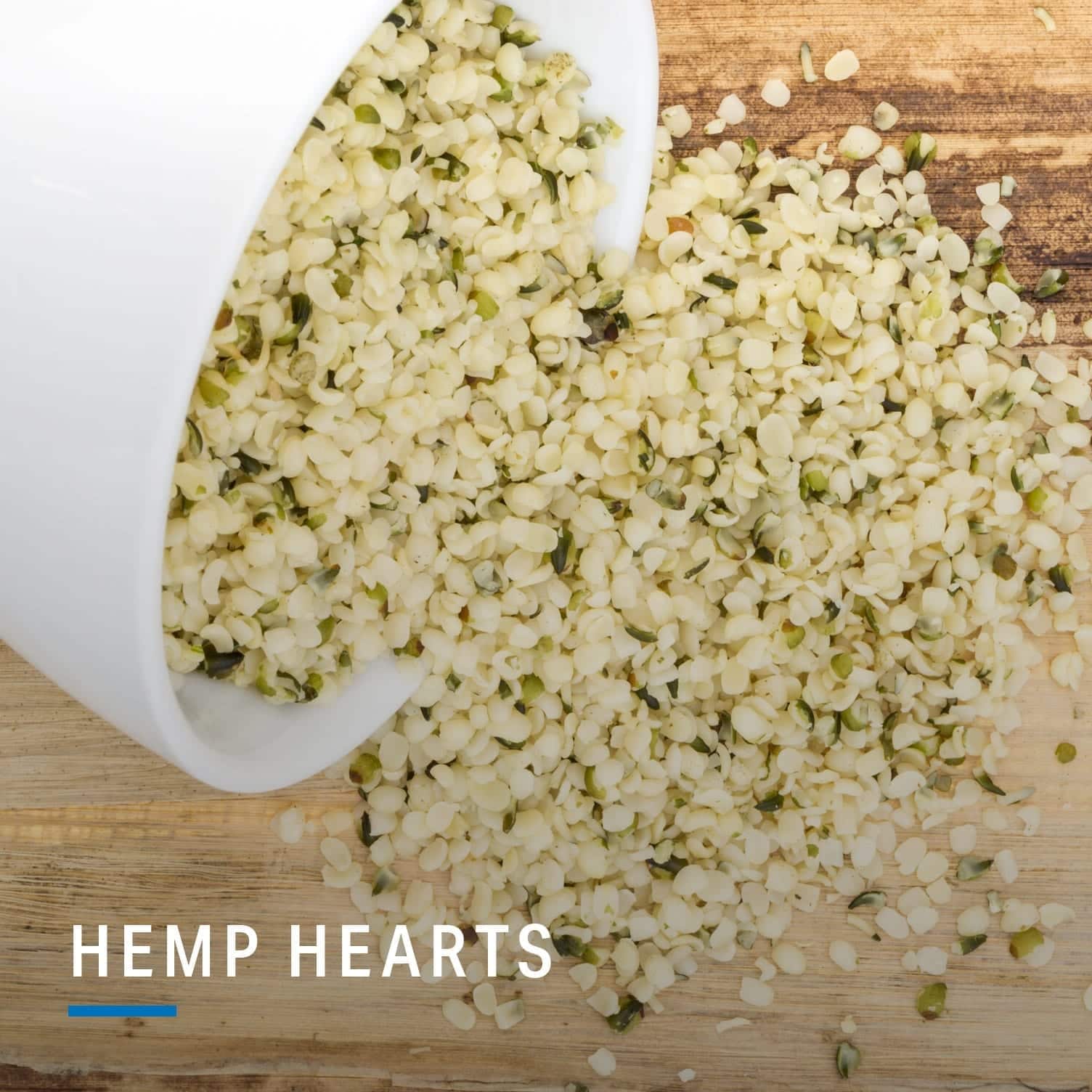
“These shelled hemp seeds have 2 times the protein and more omega-3 fatty acids than chia and flaxseed.”
— Goodson
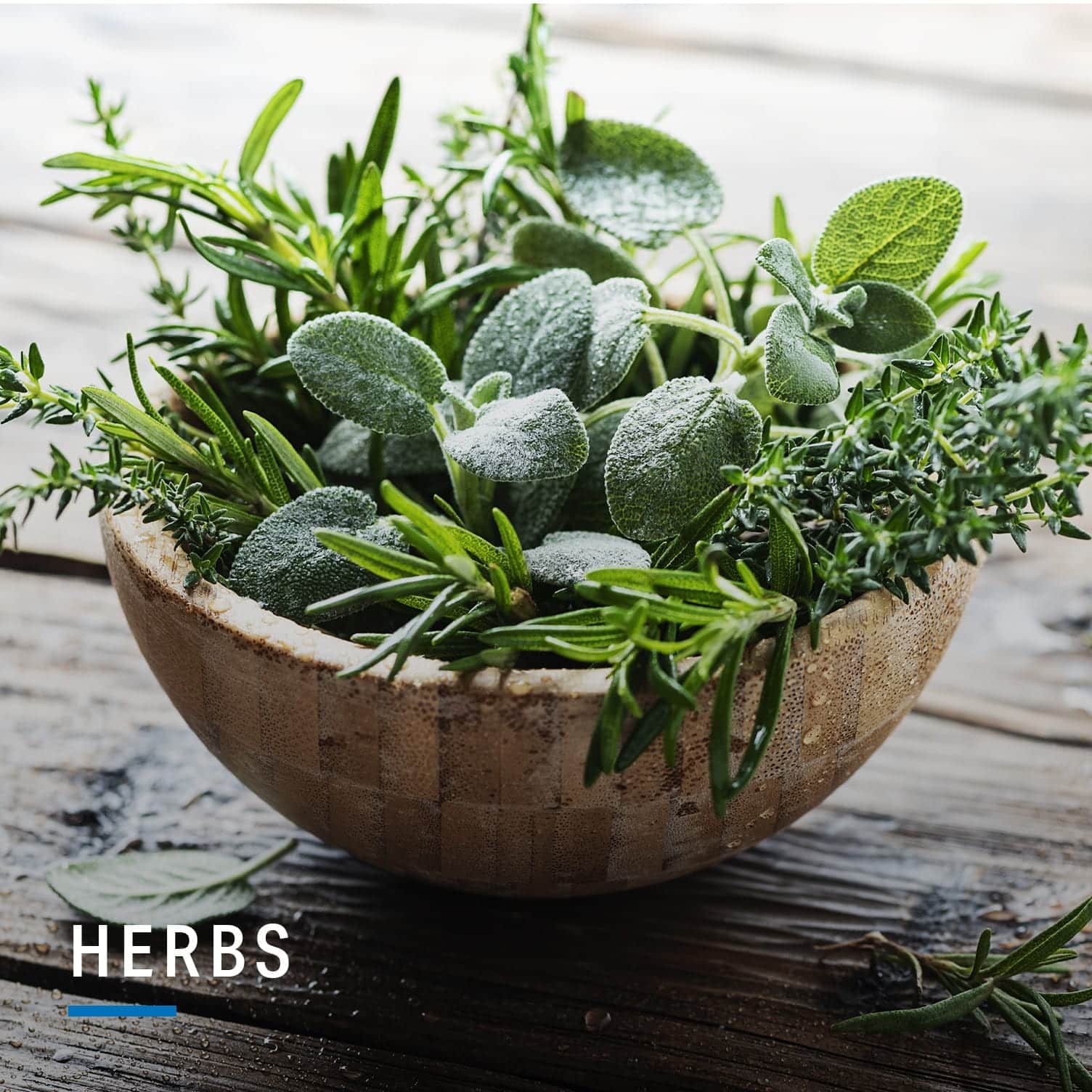
“Herbs are a flavorful way to season food instead of using salt, which is great for those with high blood pressure.”
— Goodson
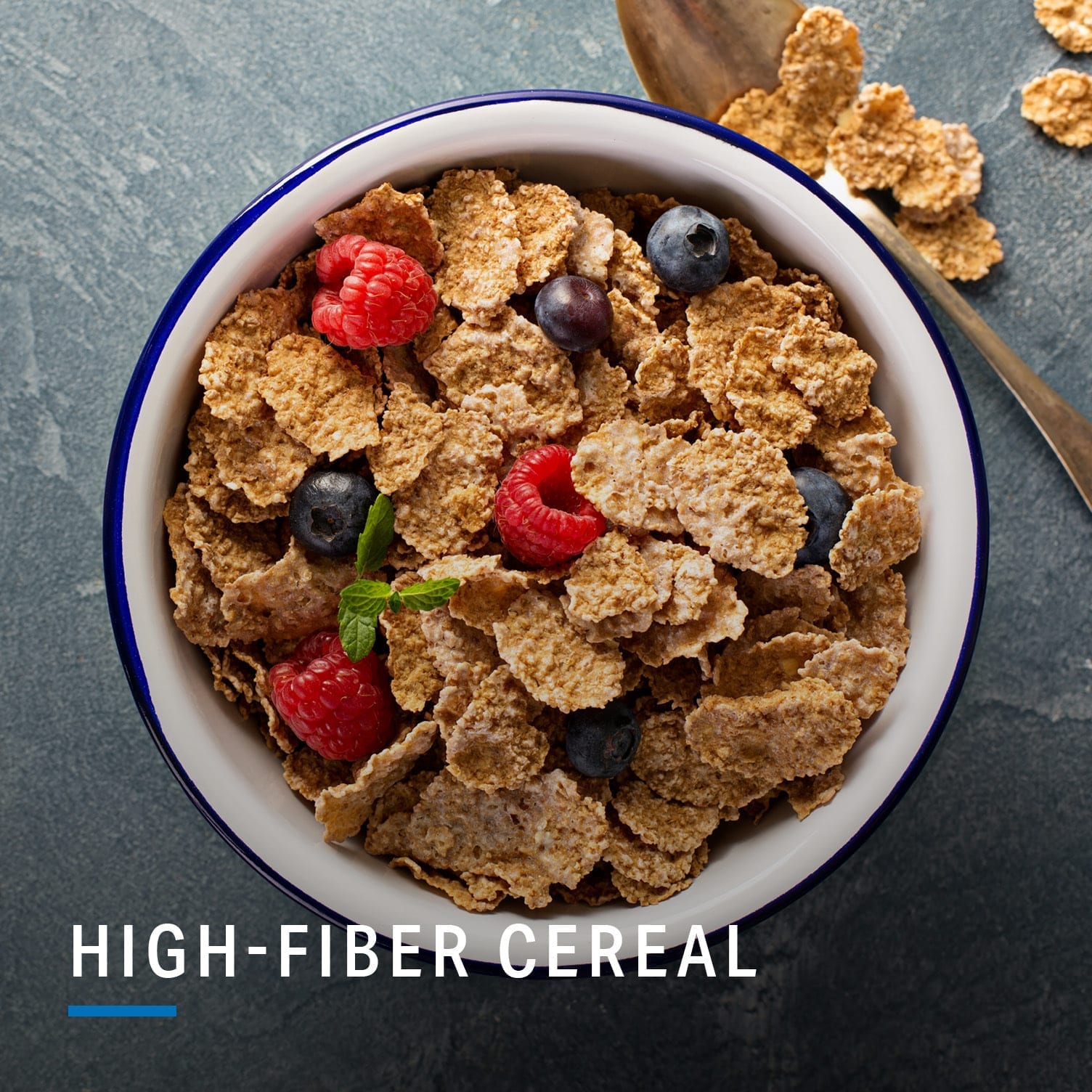
“Fiber helps with the full factor and the crunch is great in salads as a crouton alternative, a crunchy topping for oatmeal, or it can be crushed and used as a breading for chicken or fish.”
— Bonci
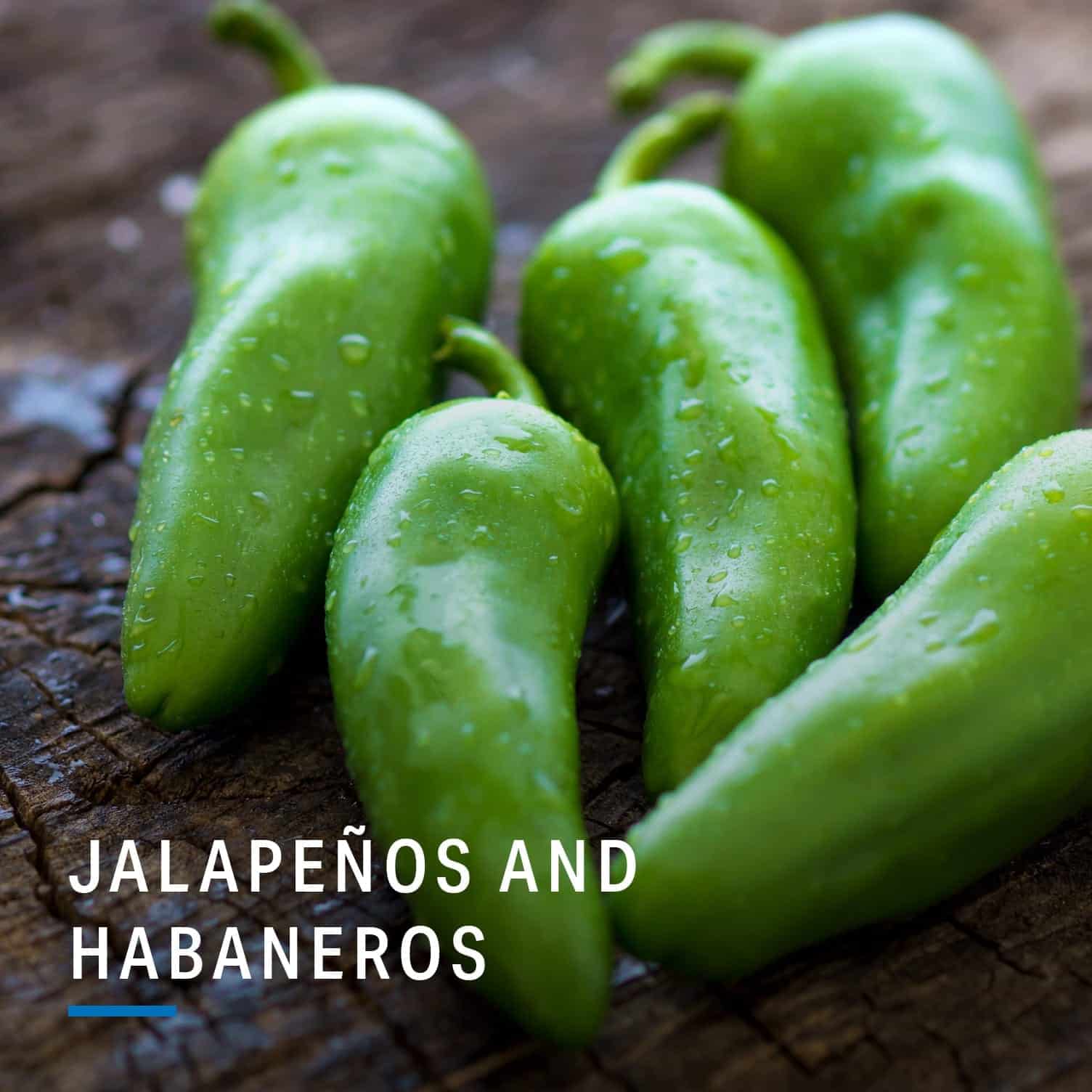
“Bring on the heat! Adding spice to a dish adds a layer of flavors without calories, plus these peppers have phytonutrients and fiber.”
— Bonci
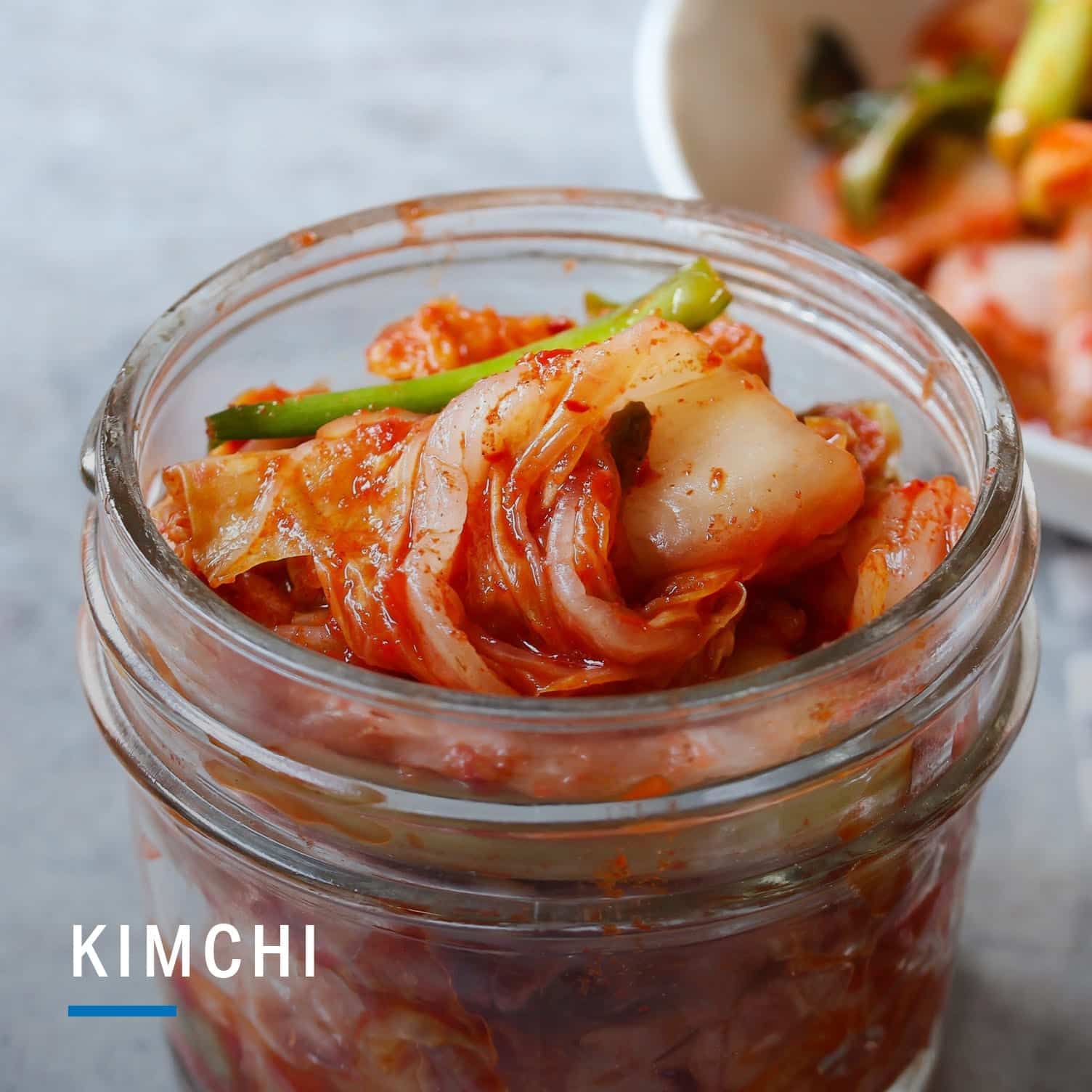
“Kimchi is a probiotic lactic-acid bacteria fermented vegetable, which can help aid in gut health and help with digestion.”
— Goodson
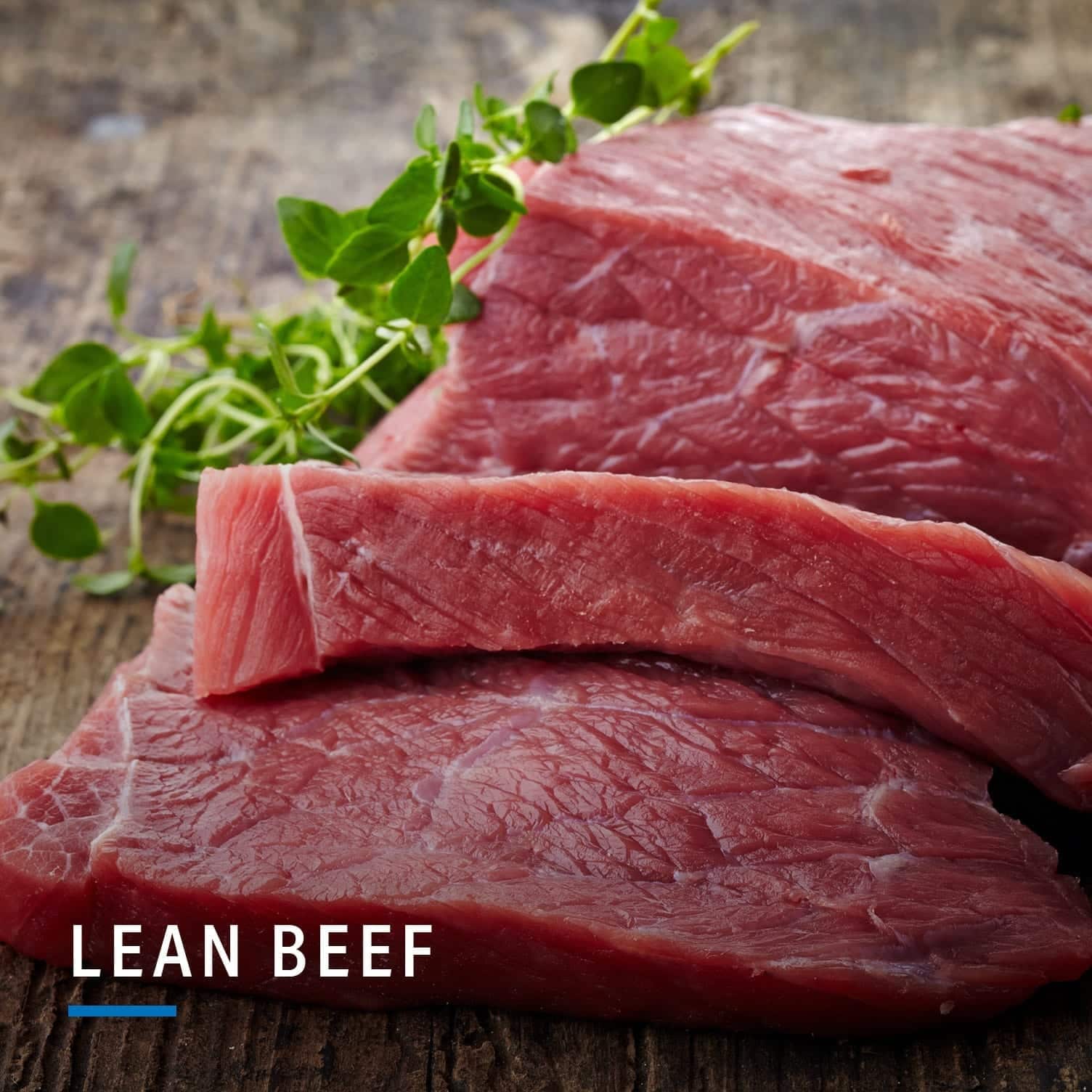
“With 10 essential nutrients, lean beef is a high-quality protein option that can help build and maintain lean muscle mass.”
— Goodson
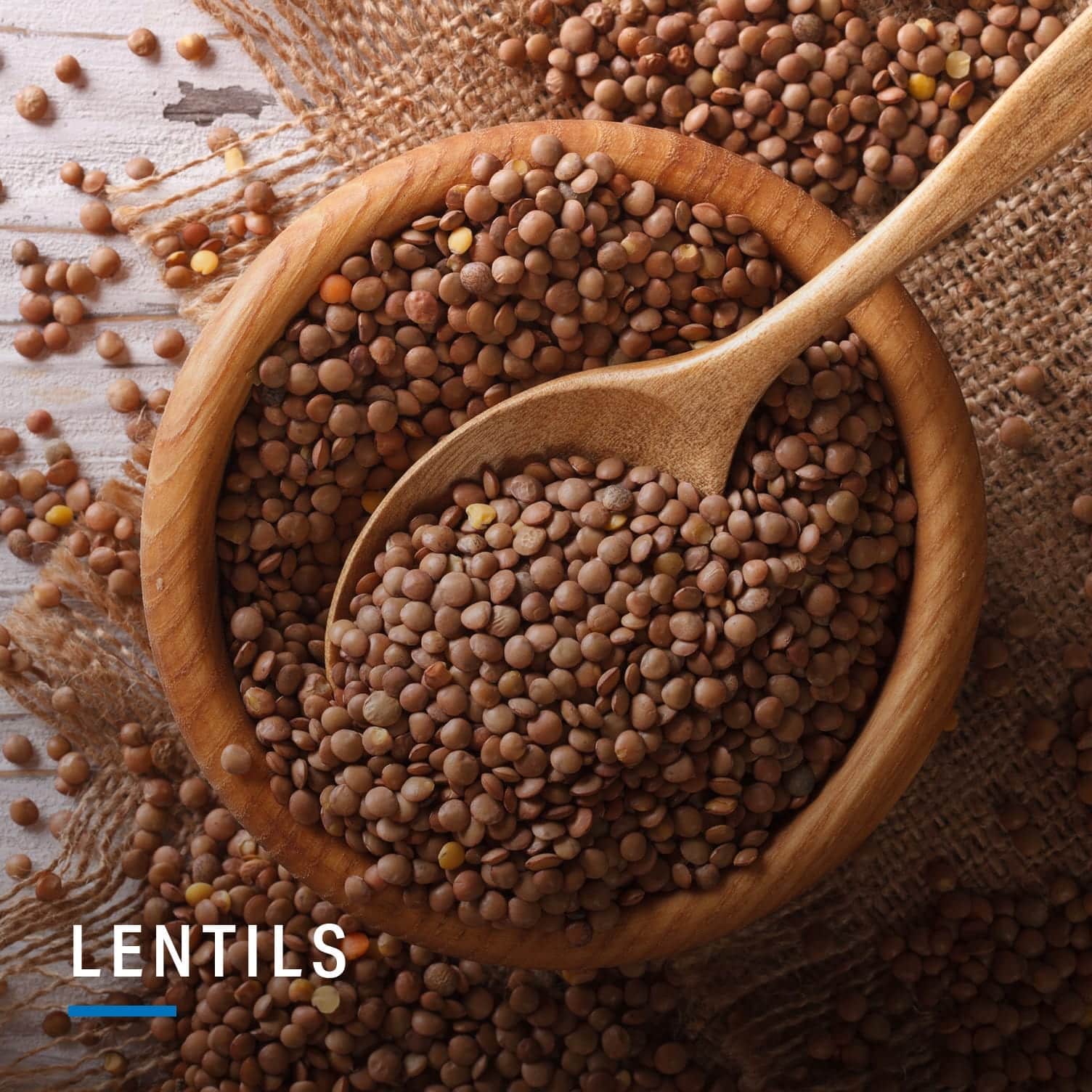
“Lentils are a good source of plant-based protein as well as fiber, which is great for those who follow vegetarian or vegan eating patterns.”
— Goodson
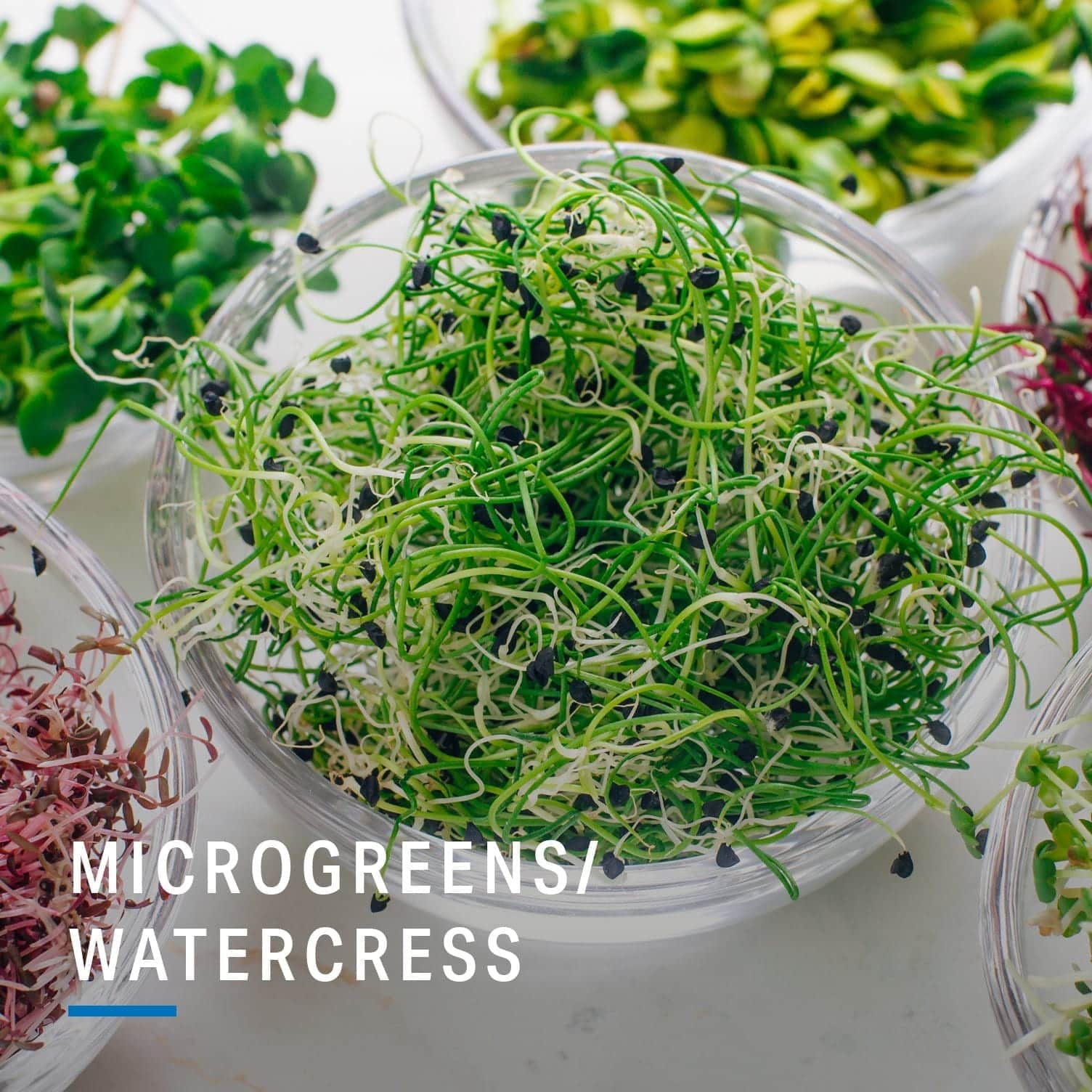
“Baby versions of plants are some of the most nutrient-dense foods available, as they have developed unique plant-protective compounds during initial growing. This is also why they tend to be more bitter than the full-grown version. When you eat microgreens, or sprouts, the plant-protection and outstanding nutrient density is conferred on to you. Watercress or other microgreens can be a colorful topper for avocado toast, or used within a salad mix, and they also do well in soup.”
— Wyosnick
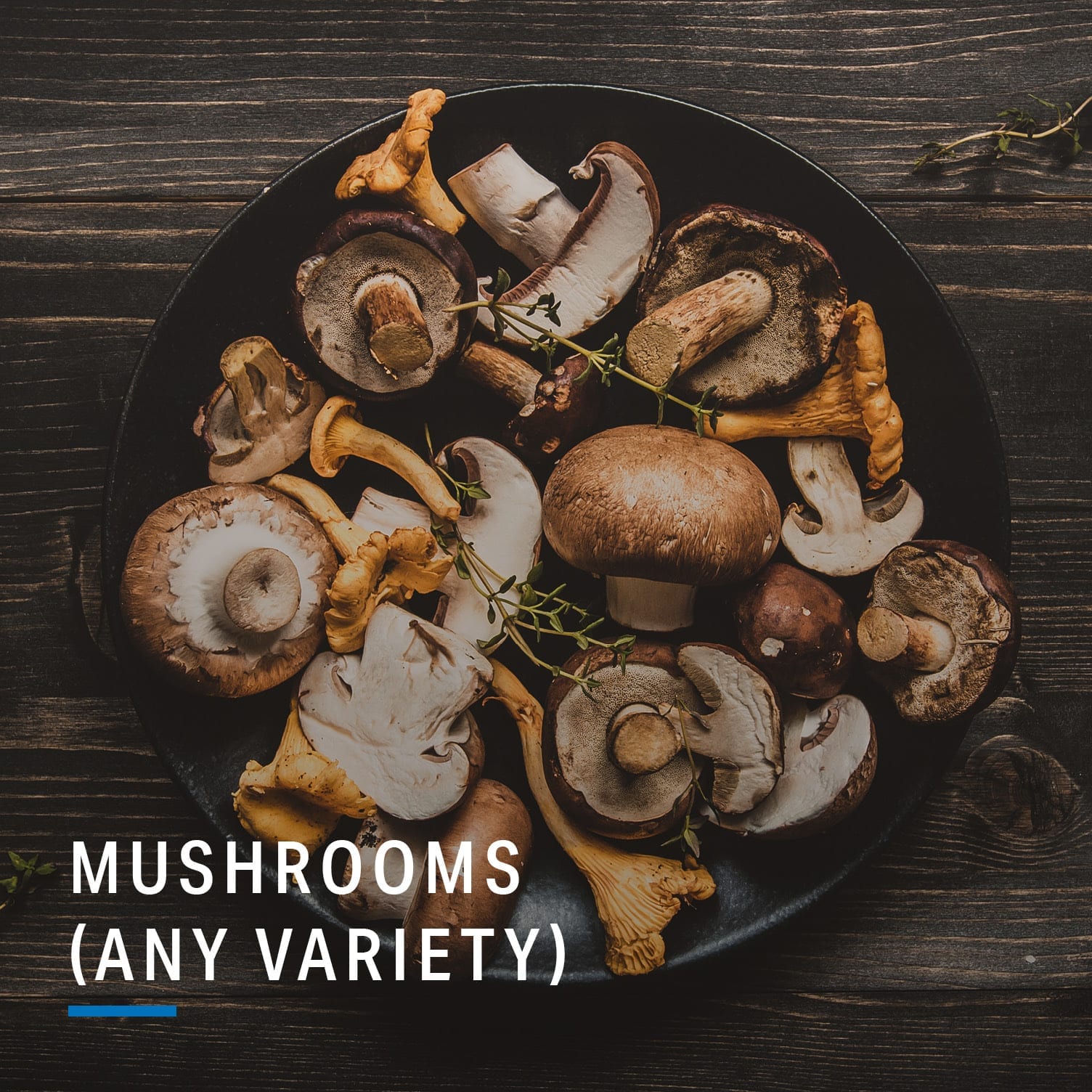
“These tubers are extremely supportive to immune health because they contain beta-(D)-glucan, a type of prebiotic fiber that feeds the beneficial bacteria of the gut microbiome. Eat the entire mushroom (stem and all) for the greatest benefit. They are delicious in eggs, added to grain bowls, pasta, soups and stews.”
— Wyosnick
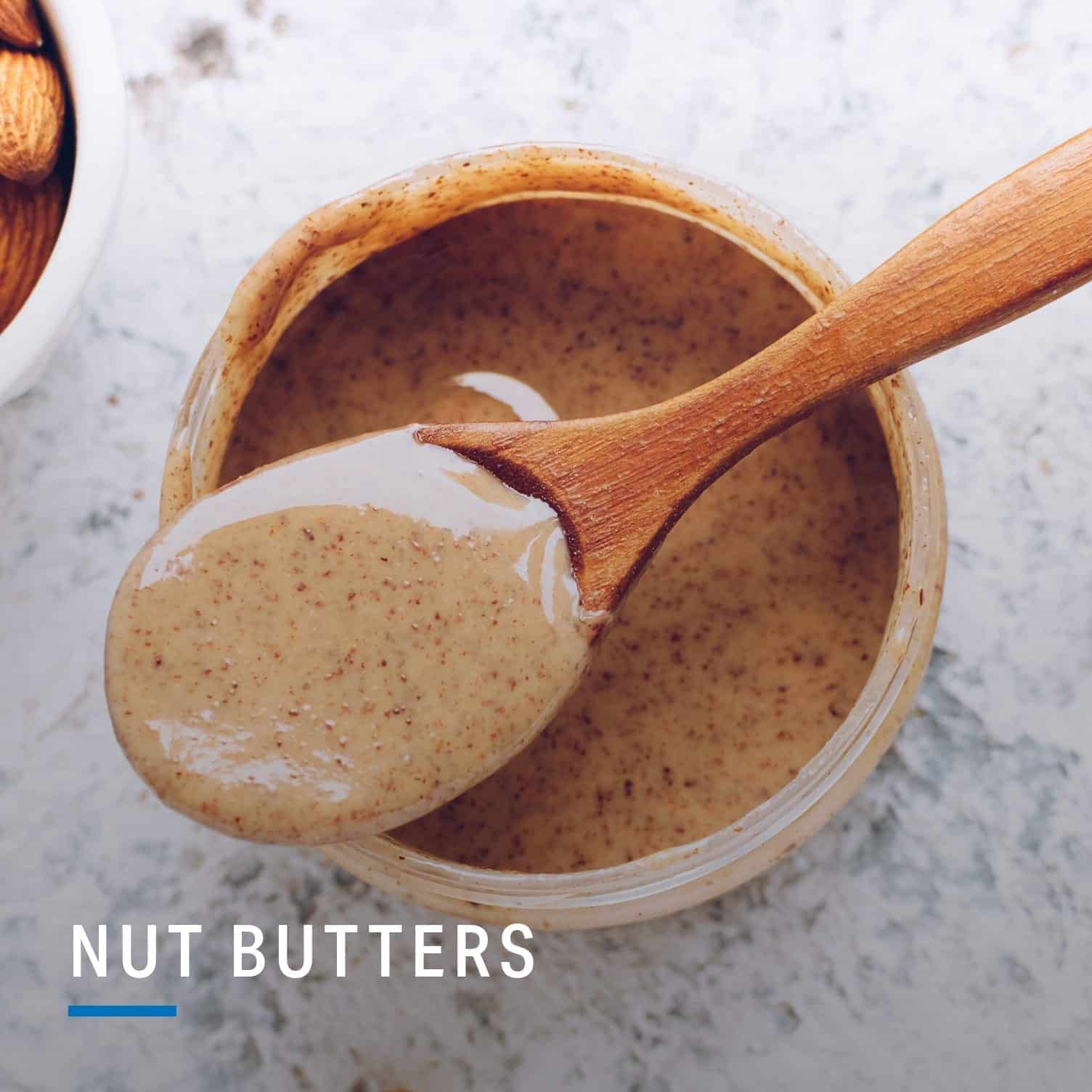
Nut butters, while eaten in moderation, are brimming with plant-based protein, vitamins and minerals. “Like protein, fats can add ‘staying power’ or satiety to your meals since they are slow-digesting.”
— Macher
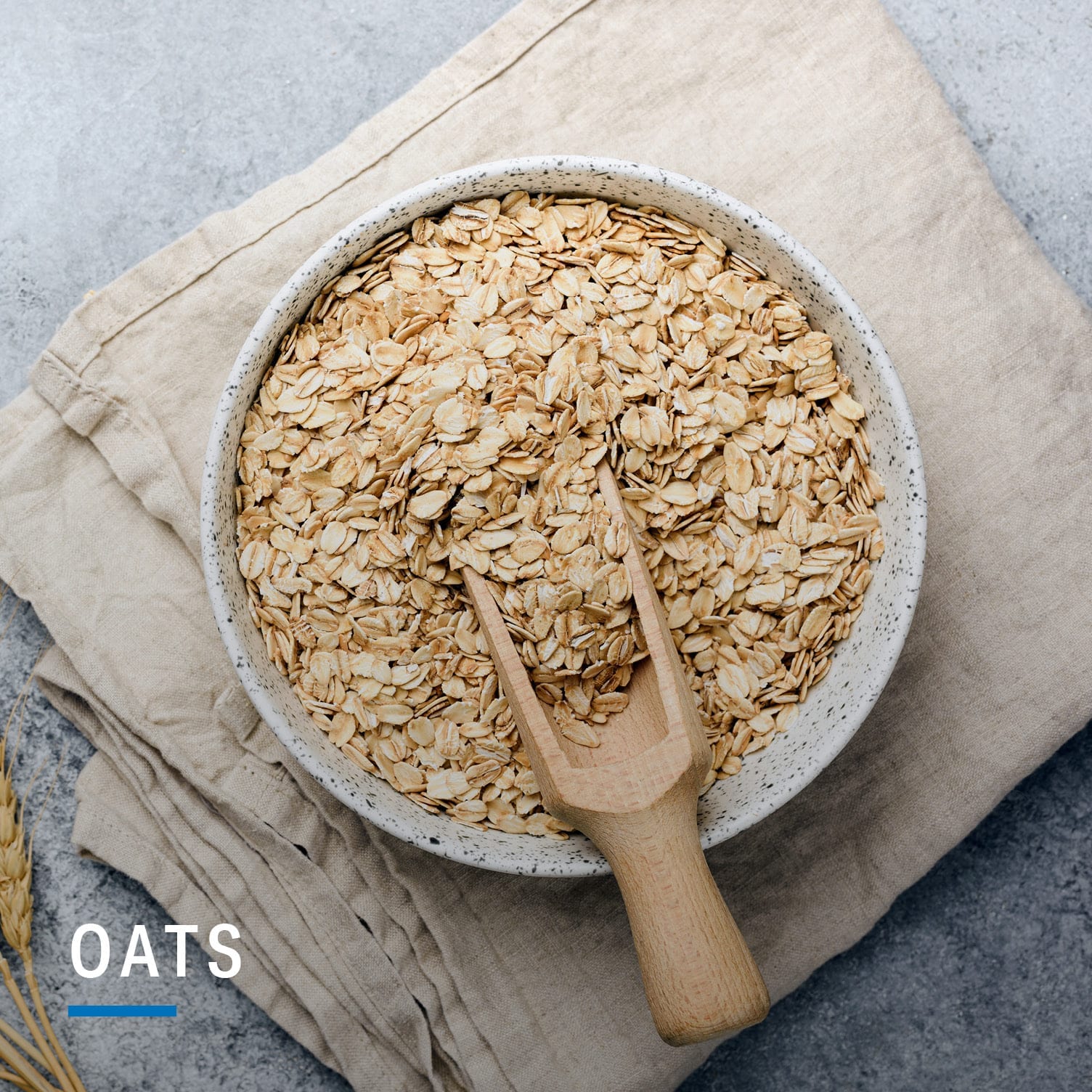
“Oats are a nutritious food high in soluble fiber, which help lower cholesterol and blood sugar. They are very versatile and can be cooked into oatmeal or added to muffins, cookies, pancakes and smoothies.”
— Al Bochi
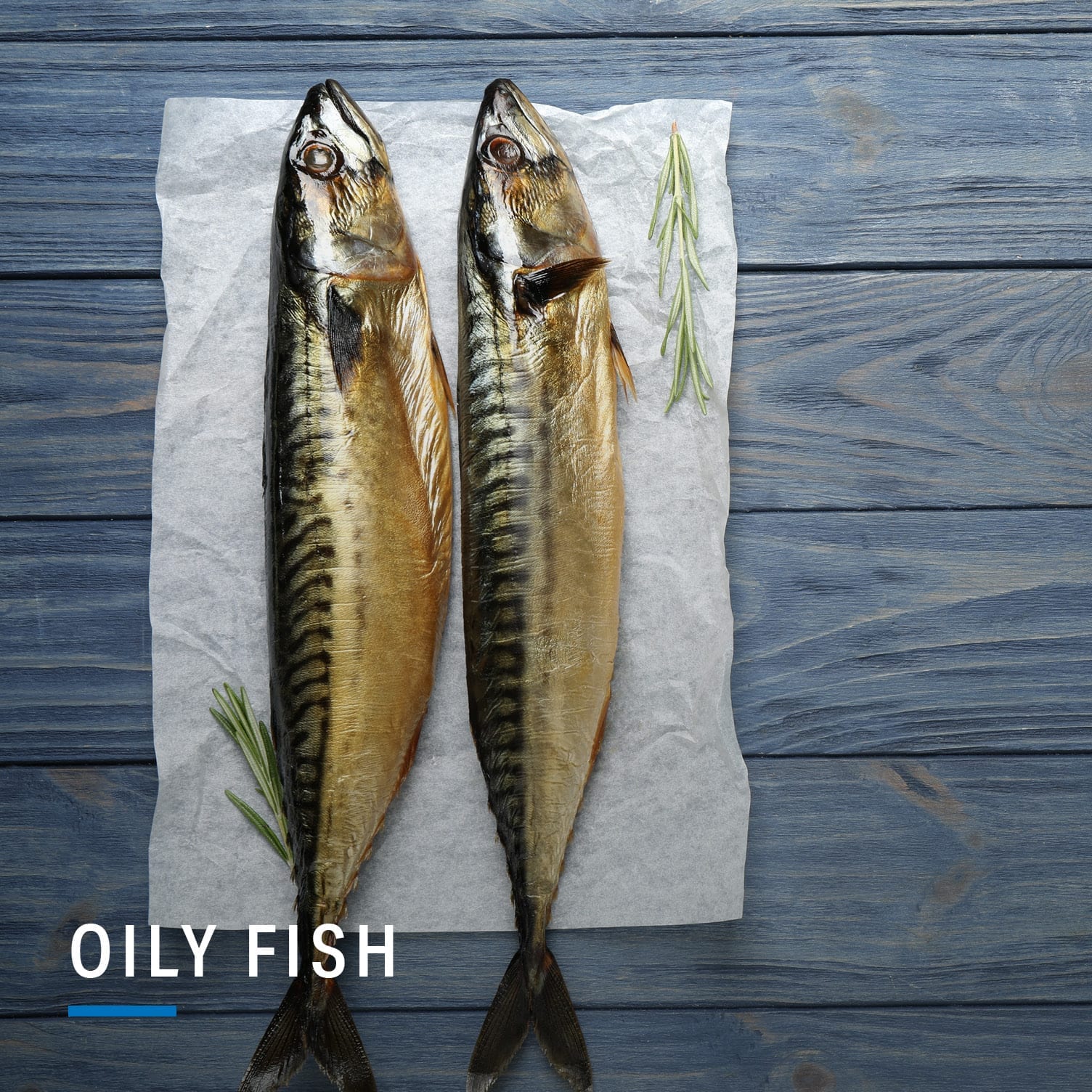
“Salmon, sardines, mackerel and anchovies are very high in anti-inflammatory omega-3 fatty acids EPA and DHA, which are important for mood support, heart health, skin health and immunity.”
— Wyosnick
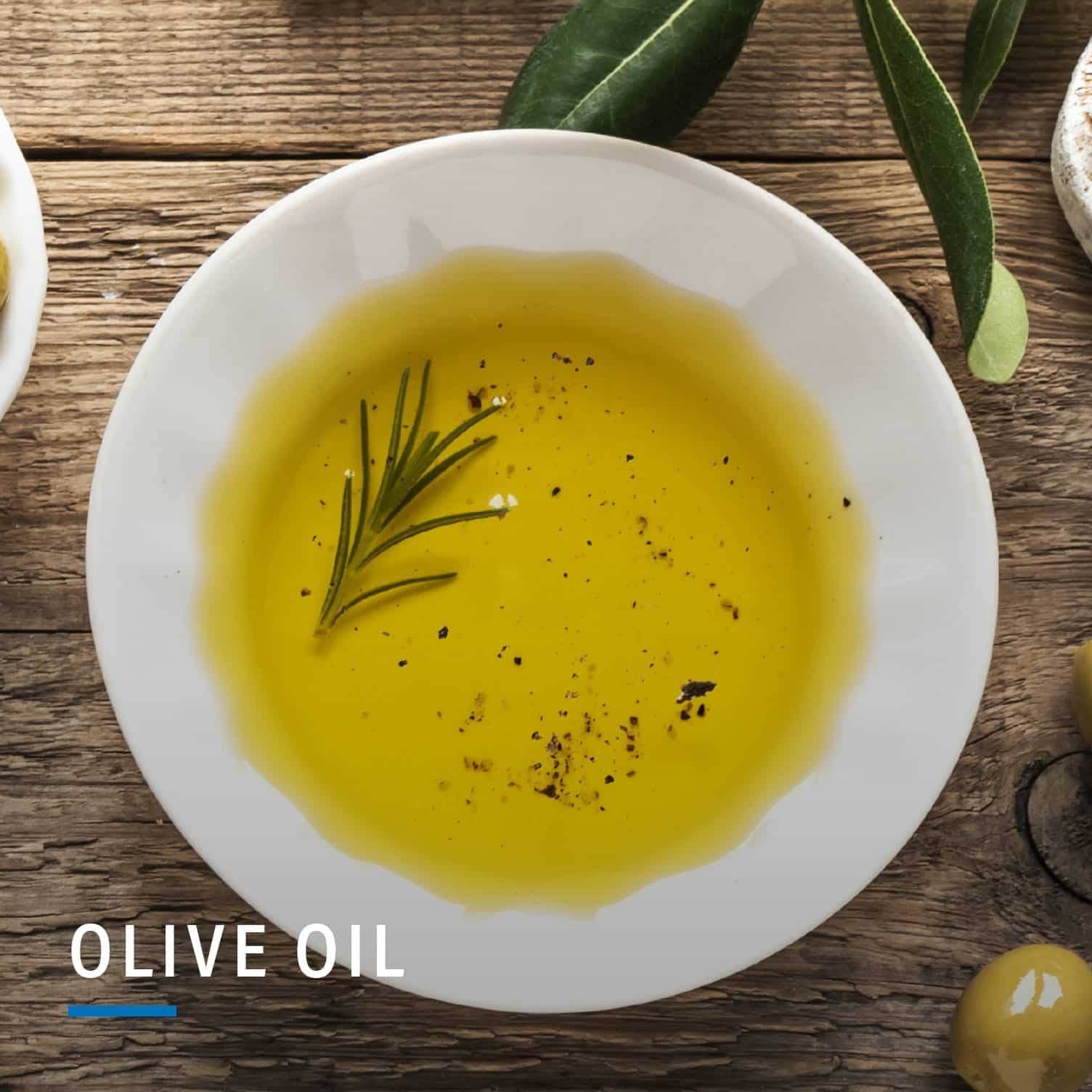
“Rich in healthy monounsaturated fats and vitamin E, olive oil is a staple for salad dressings, marinades and dips.”
— Rahaf Al Bochi, RDN, LD, owner of Olive Tree Nutrition and a spokesperson for the Academy of Nutrition and Dietetics
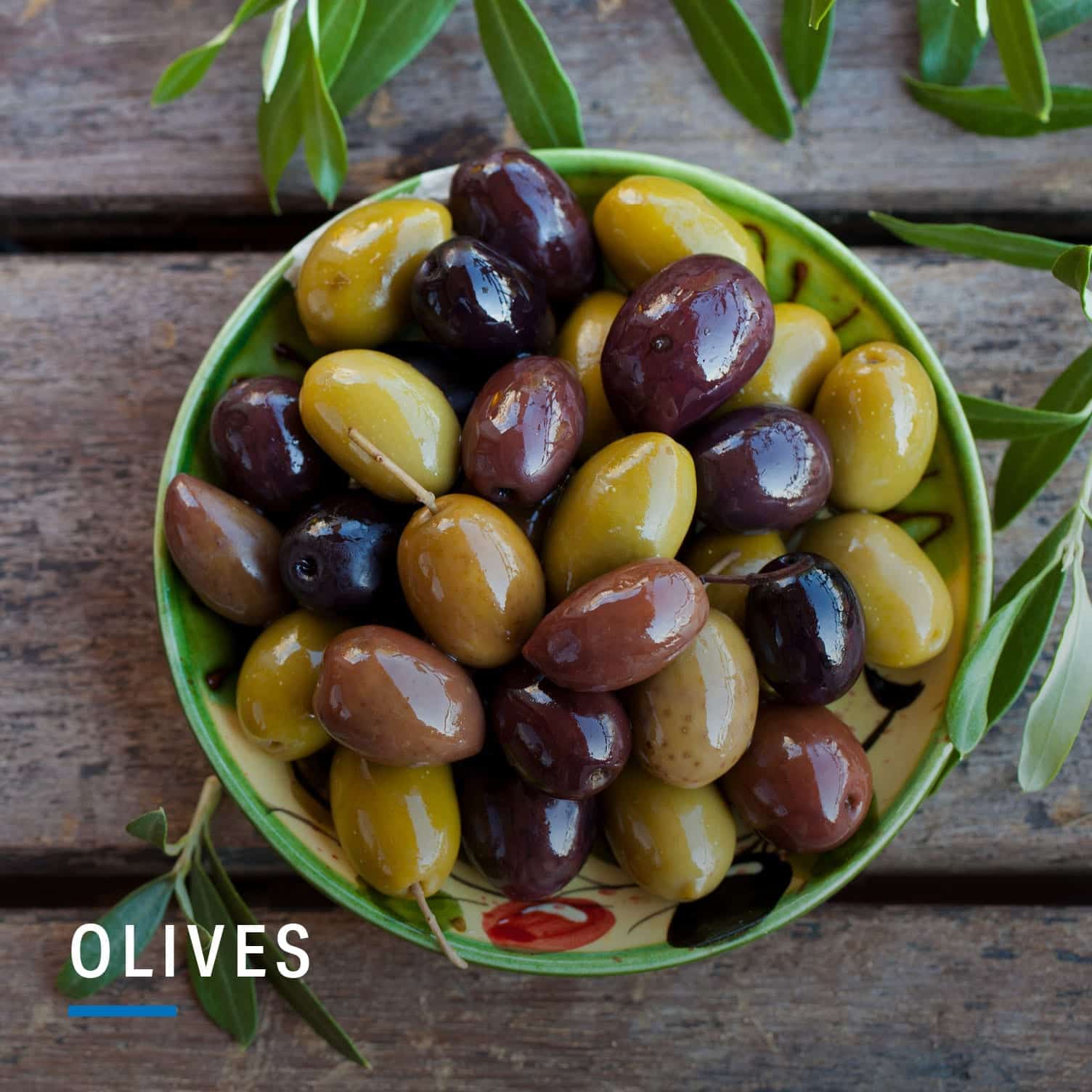
“Olives are a fruit that is high in healthy monounsaturated fats and antioxidants. A staple of the Mediterranean, olives can be enjoyed as an appetizer with pita bread or added to pizza, casseroles and salads.”
— Al Bochi
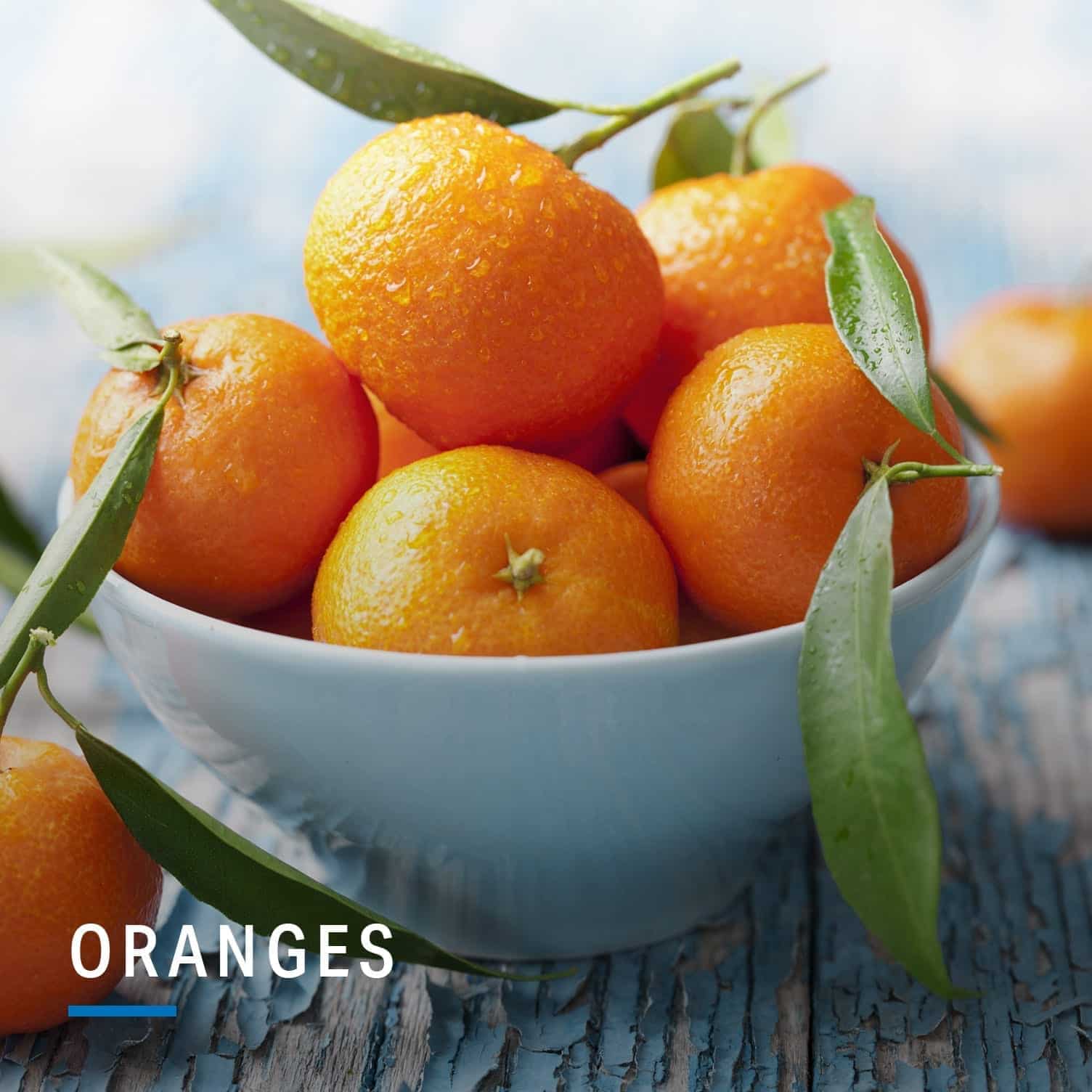
“Oranges provide fiber as well as fluid for a sweet treat that takes some time to eat.”
— Bonci
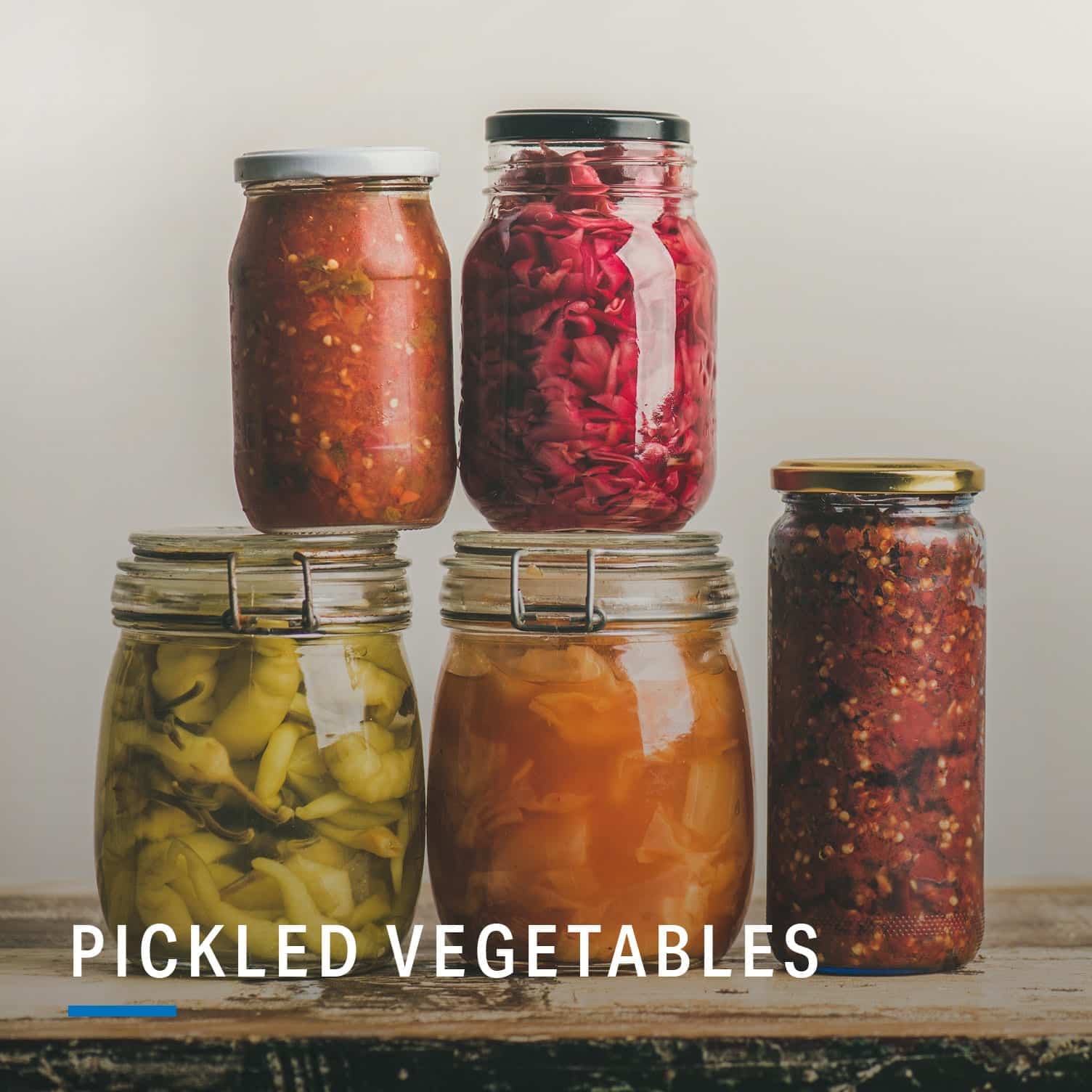
“Real pickled vegetables, those that have been lacto-fermented and only found in the refrigerated section of the grocery store, are wonderful sources of gut-supportive probiotics. Many people rely on dairy sources of probiotics, but the most benefit from consuming probiotic-rich foods is realized when sources are diverse. Pickled vegetables are great garnishes to include in many dishes, and I like to think of them as a mini gut supplement.”
— Wyosnick
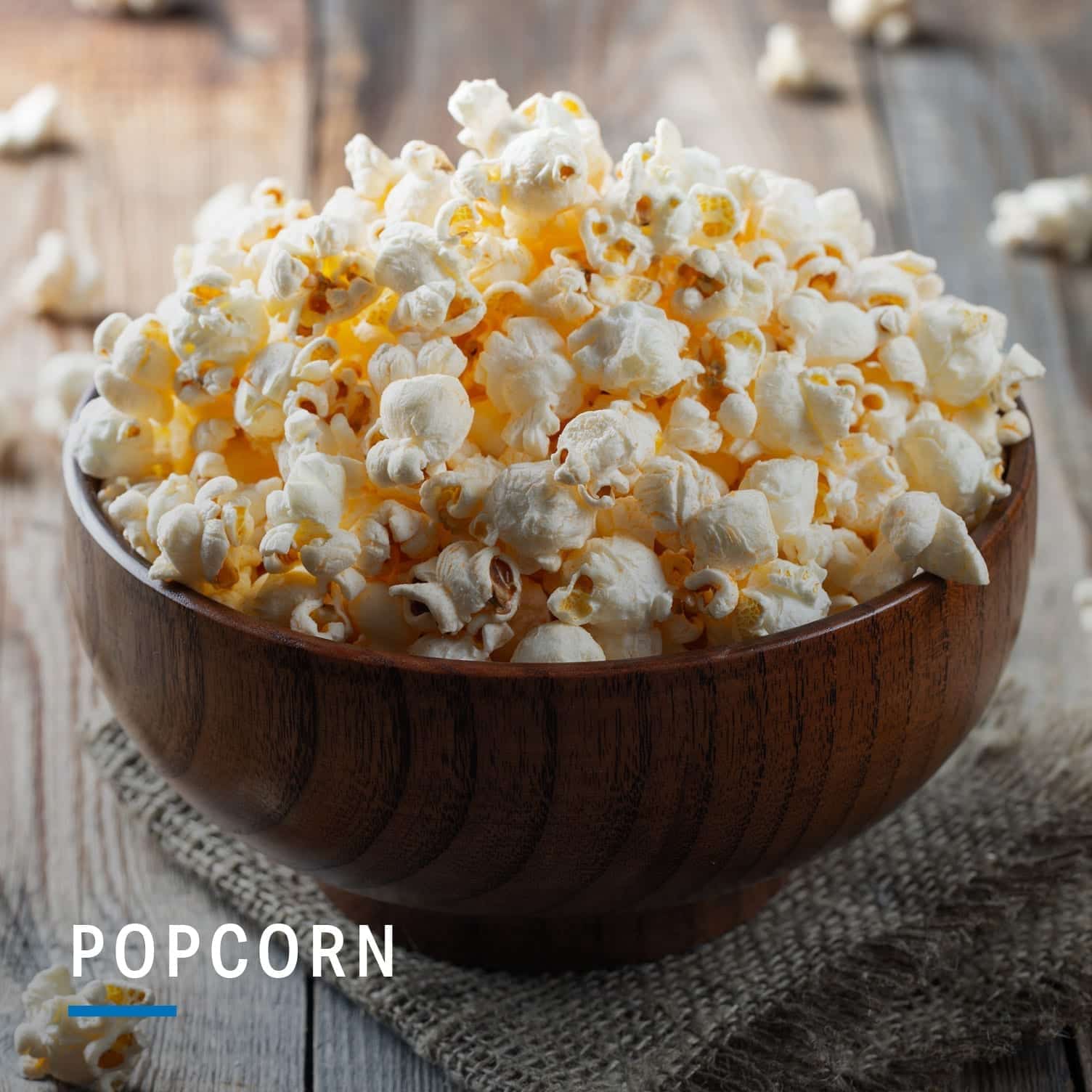
“Popcorn is a great snack because you can eat a few cups for the same number of calories as a small serving of potato chips. Popcorn also contains fiber, which is a nutrient that helps keep you fuller for longer. The only issue with popcorn is if you’re drenching it in butter or coating it in other rich toppings. But if you’re keeping your toppings on the lighter side (like a spritz of avocado oil and a sprinkle of Parmesan cheese or nutritional yeast), it’s an excellent crunchy snack for people trying to reach a healthier weight.”
— Cassetty
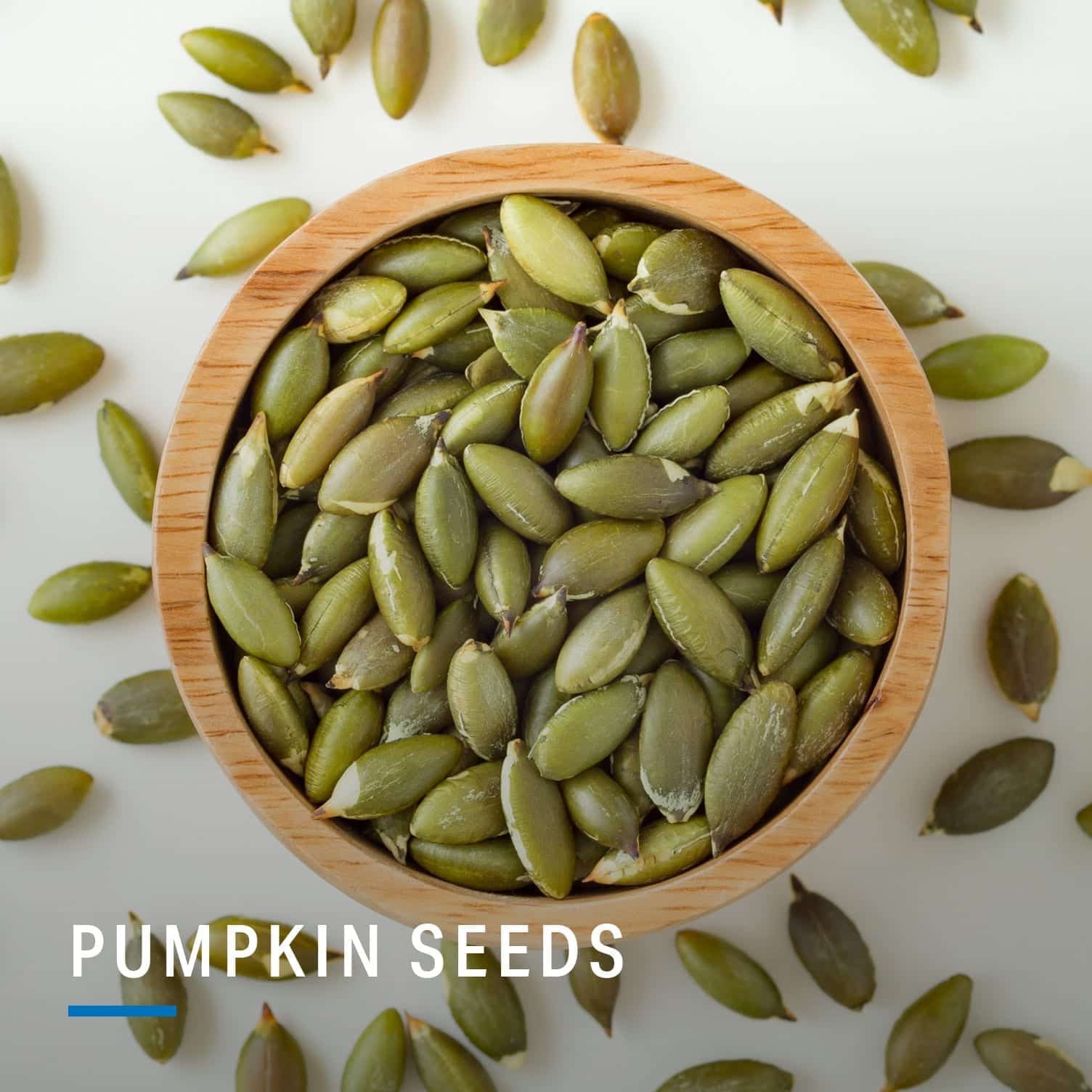
“Pumpkin seeds are unique because they are a very good source of minerals such as magnesium, and zinc and also vitamin E, which works as a potent antioxidant in the body. Make your own trail mix for a blood-sugar stabilizing snack by combining mixed nuts, pumpkin seeds and a few dates. Eat the entire seed, the outer husk and all, or opt for the more tender pepitas or kernels to still obtain great benefit.”
— Wyosnick
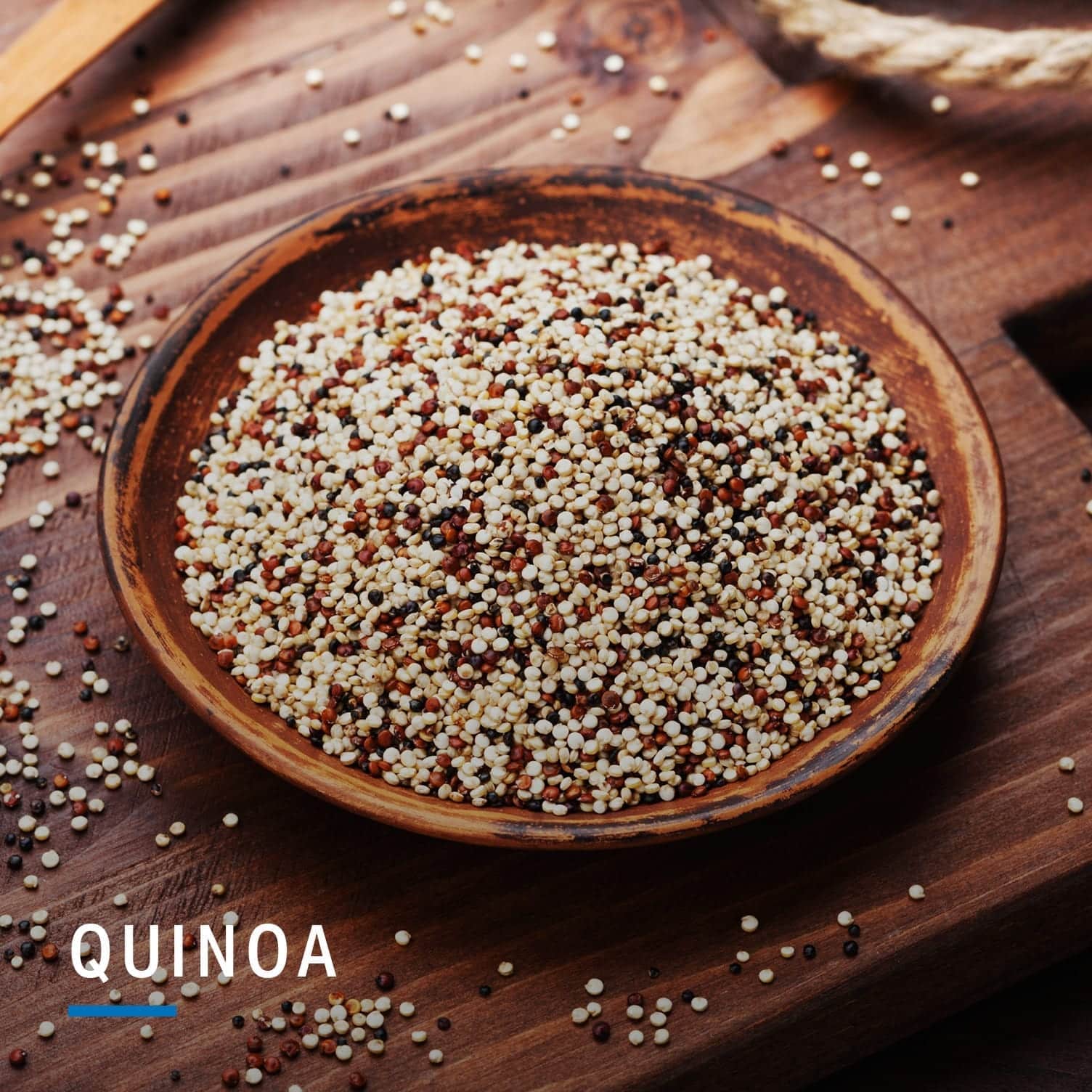
“Quinoa is considered a complete protein, meaning that it contains all the essential amino acids. And it’s the only grain that does!”
— Goodson
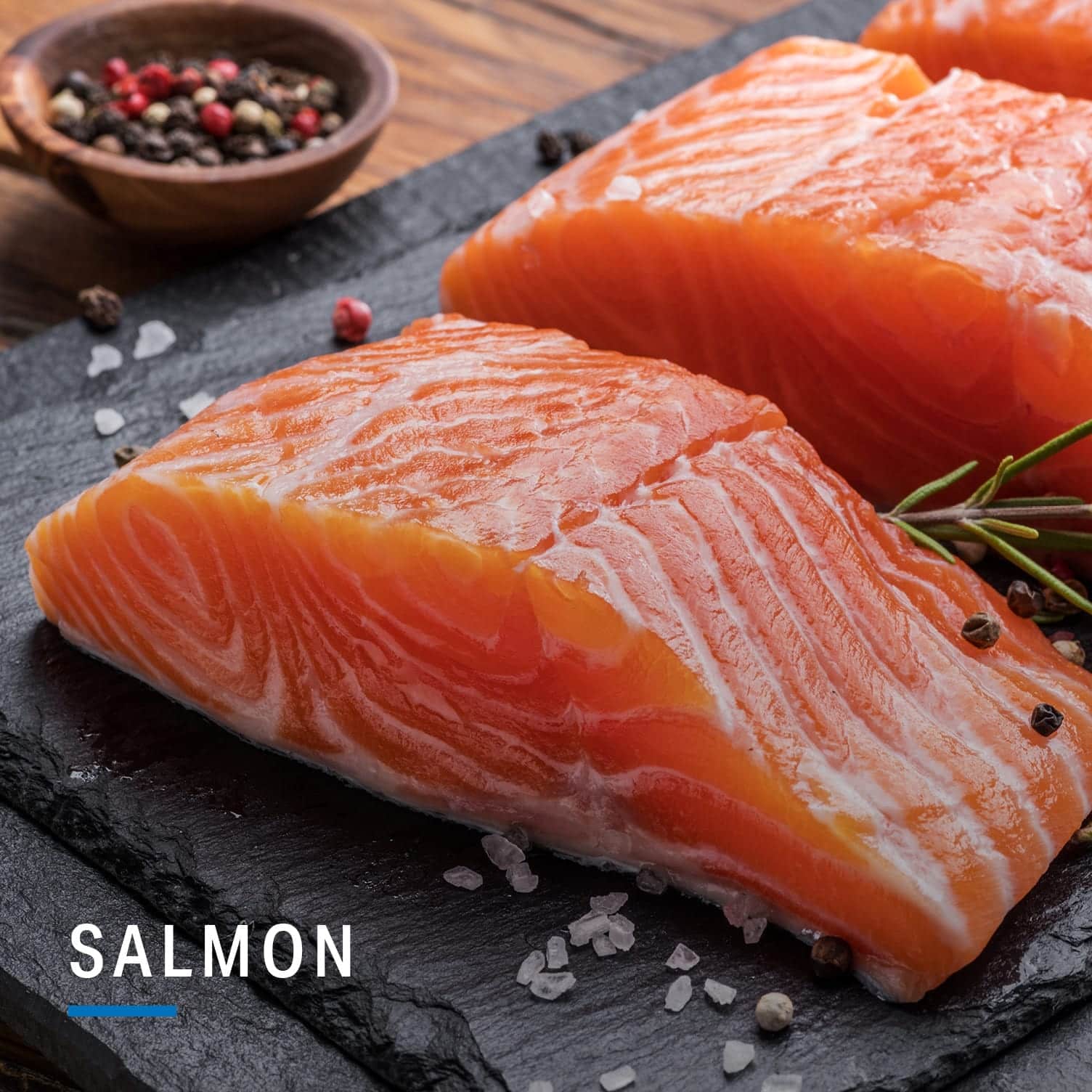
“Salmon is rich in omega-3 essential fatty acids, which have been shown to help reduce inflammation and is an important fat for baby brain and eye development.”
— Al Bochi
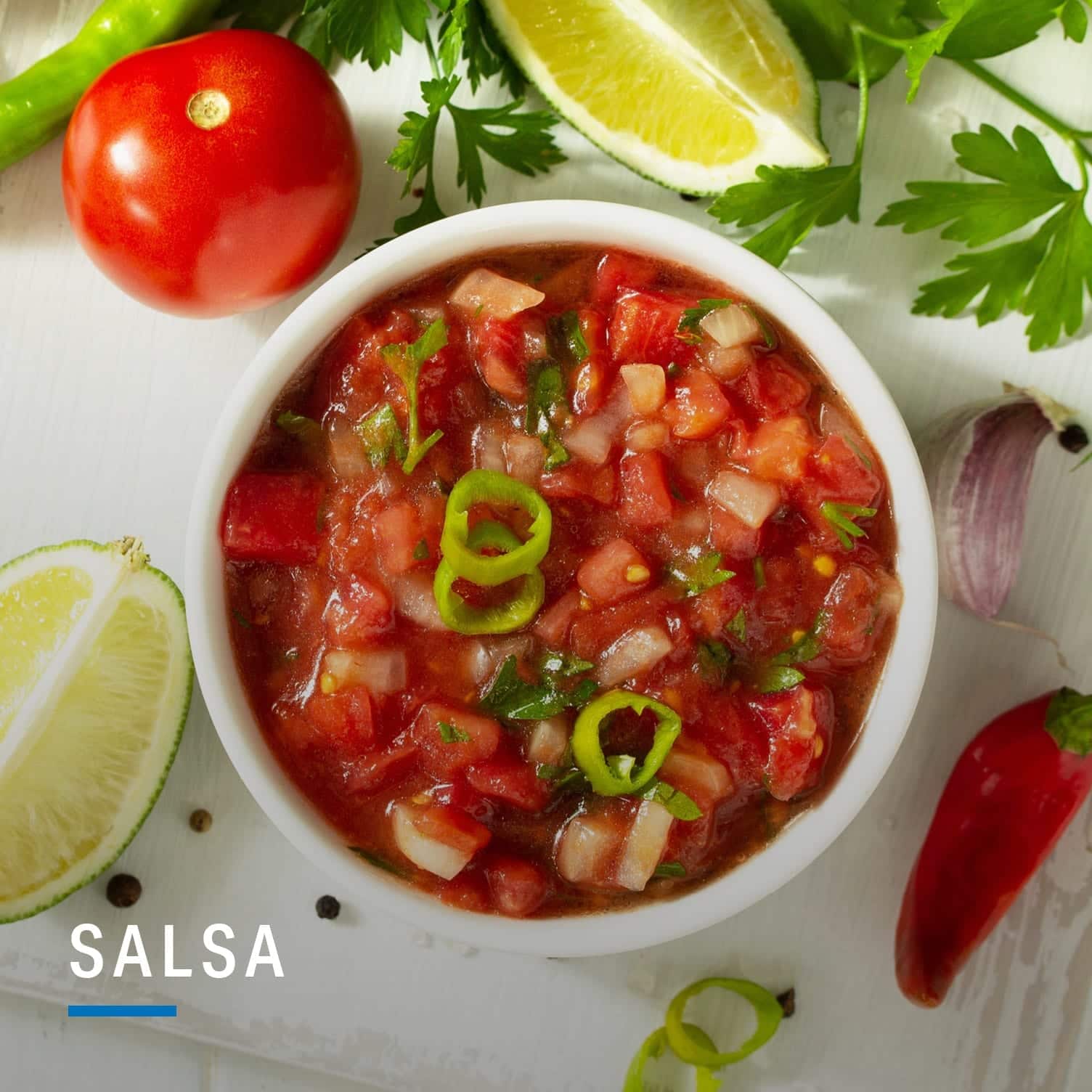
“It’s a great way to perk up the flavor with minimal calories and get some fiber, fluid and veggies as well.”
— Bonci
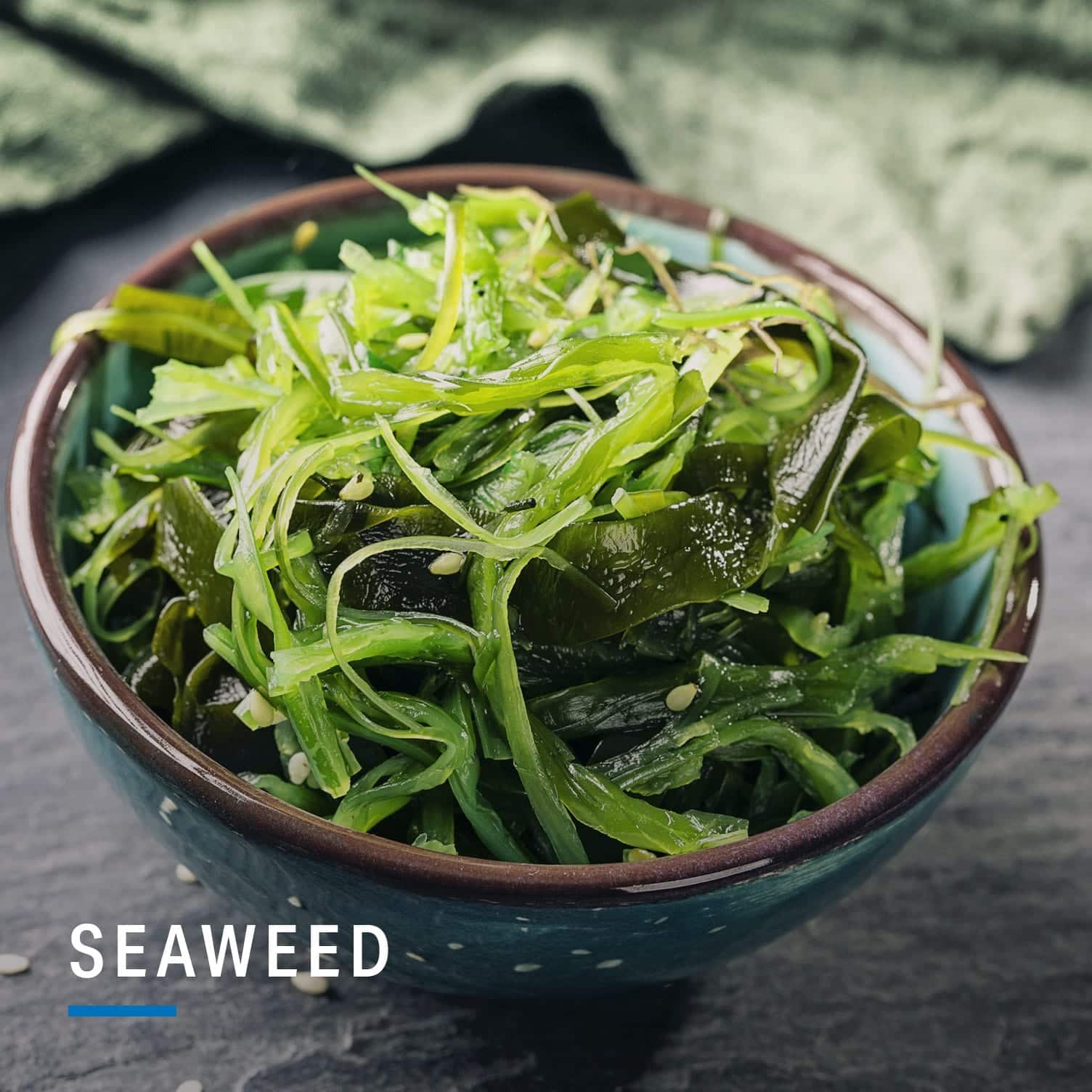
“Seaweed is a nutritious aggregate of the rich minerals found in the sea, such as iron, zinc, calcium, copper and vanadium, a unique mineral linked to beneficial blood sugar regulation. It is also a natural source of iodine which is supportive to the thyroid and the downstream functions like metabolism and energy. Nori, wakame and kelp can give a mineral boost to dishes.”
— Wyosnick
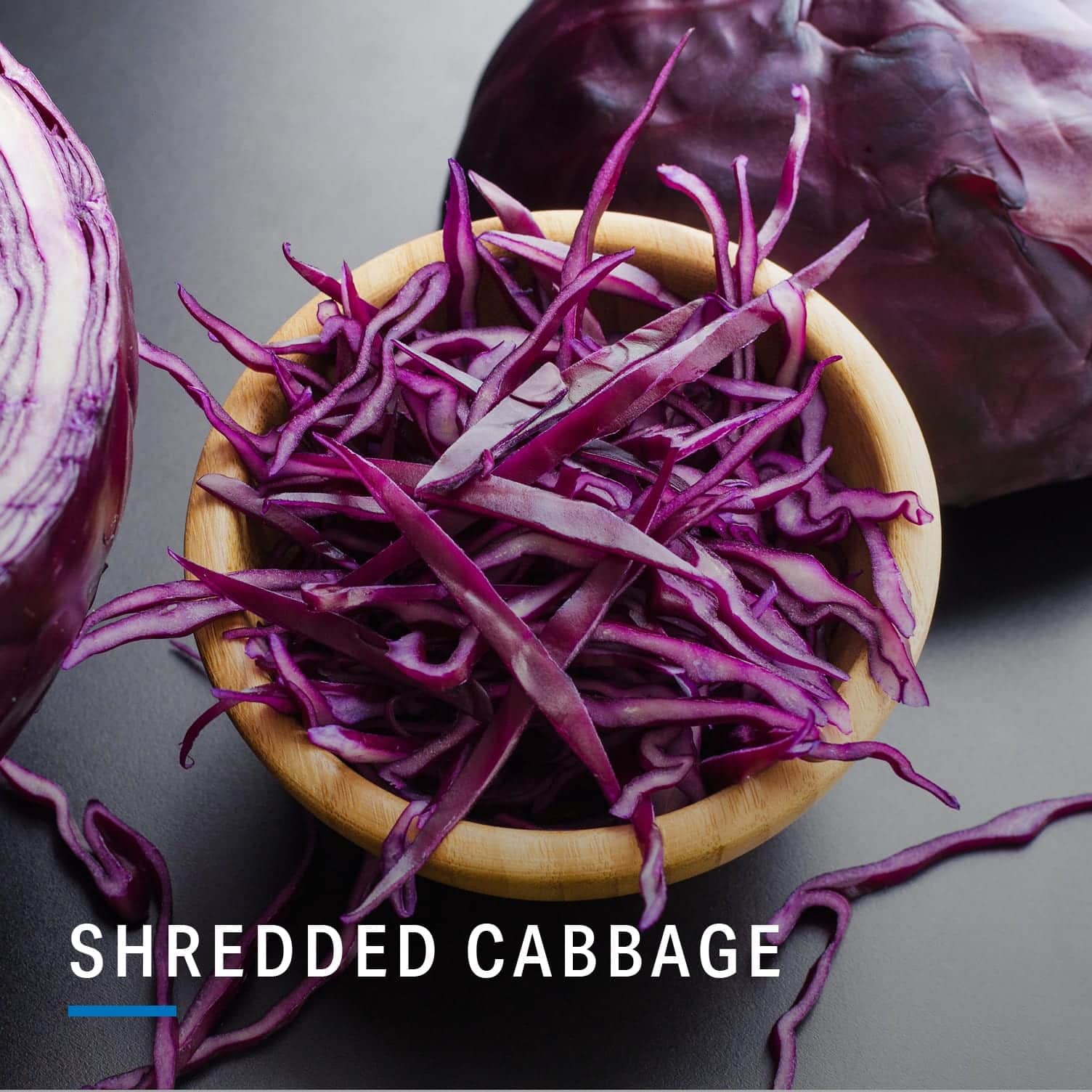
“Use instead of lettuce to bring the crunch factor with fiber and few calories. It can be the base of a bowl, the greens in a taco or the crunch in a wrap. Red cabbage is also pleasing to the eyes.”
— Bonci
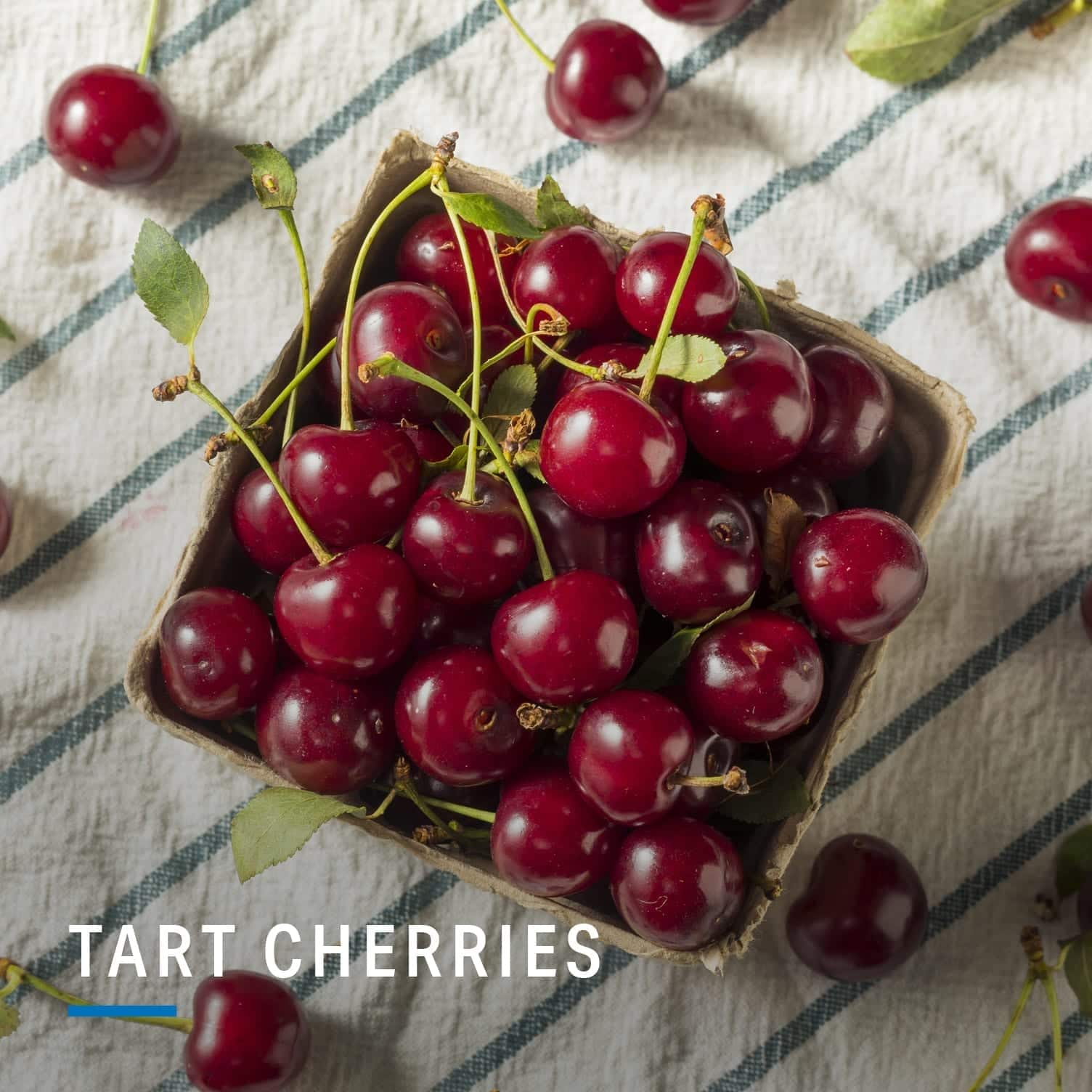
“With about five times the antioxidant power as vitamin C, tart cherries have been shown to help with athletic recovery.”
— Goodson
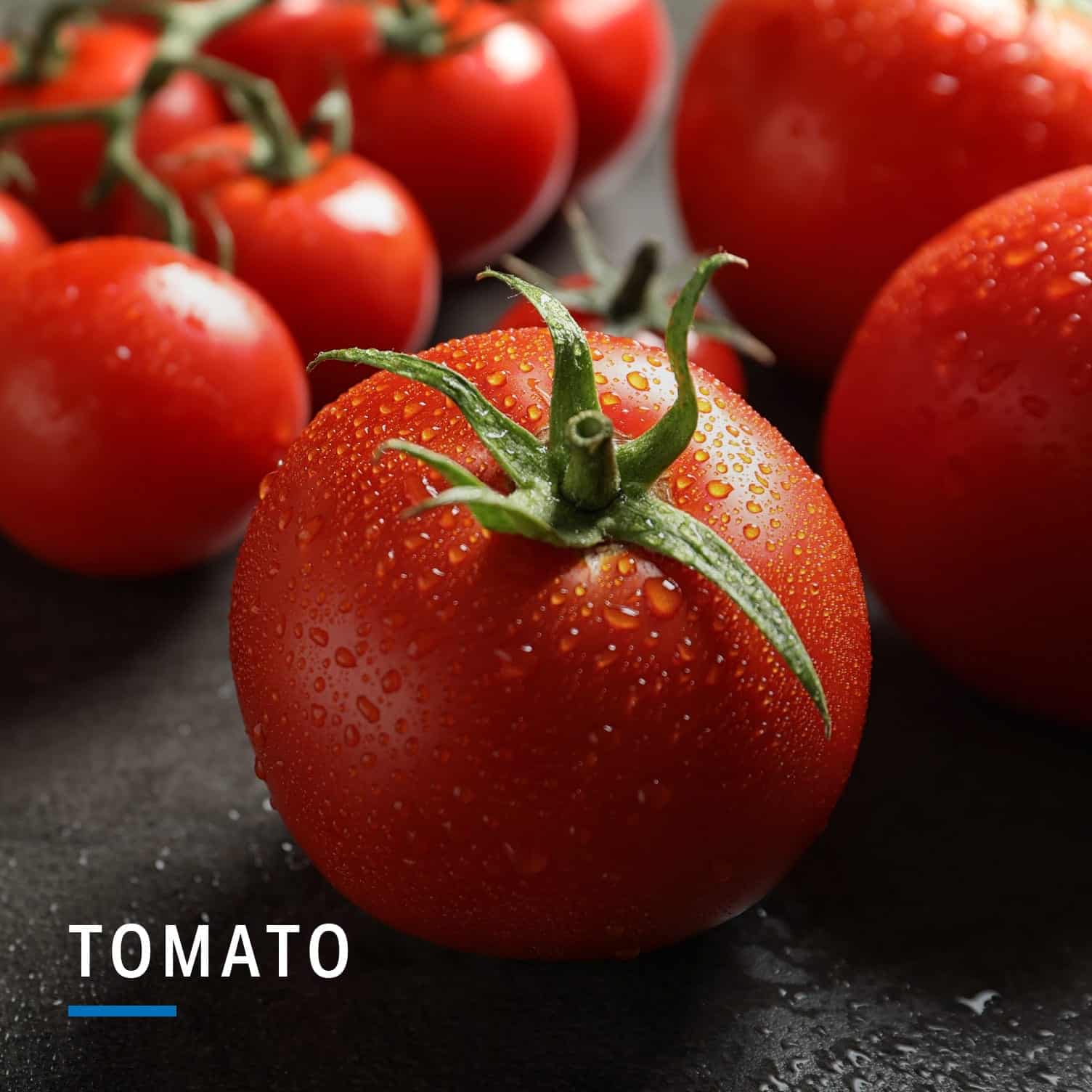
“High in vitamin C and lycopene, tomatoes and tomato sauces can provide you with antioxidants.”
— Goodson
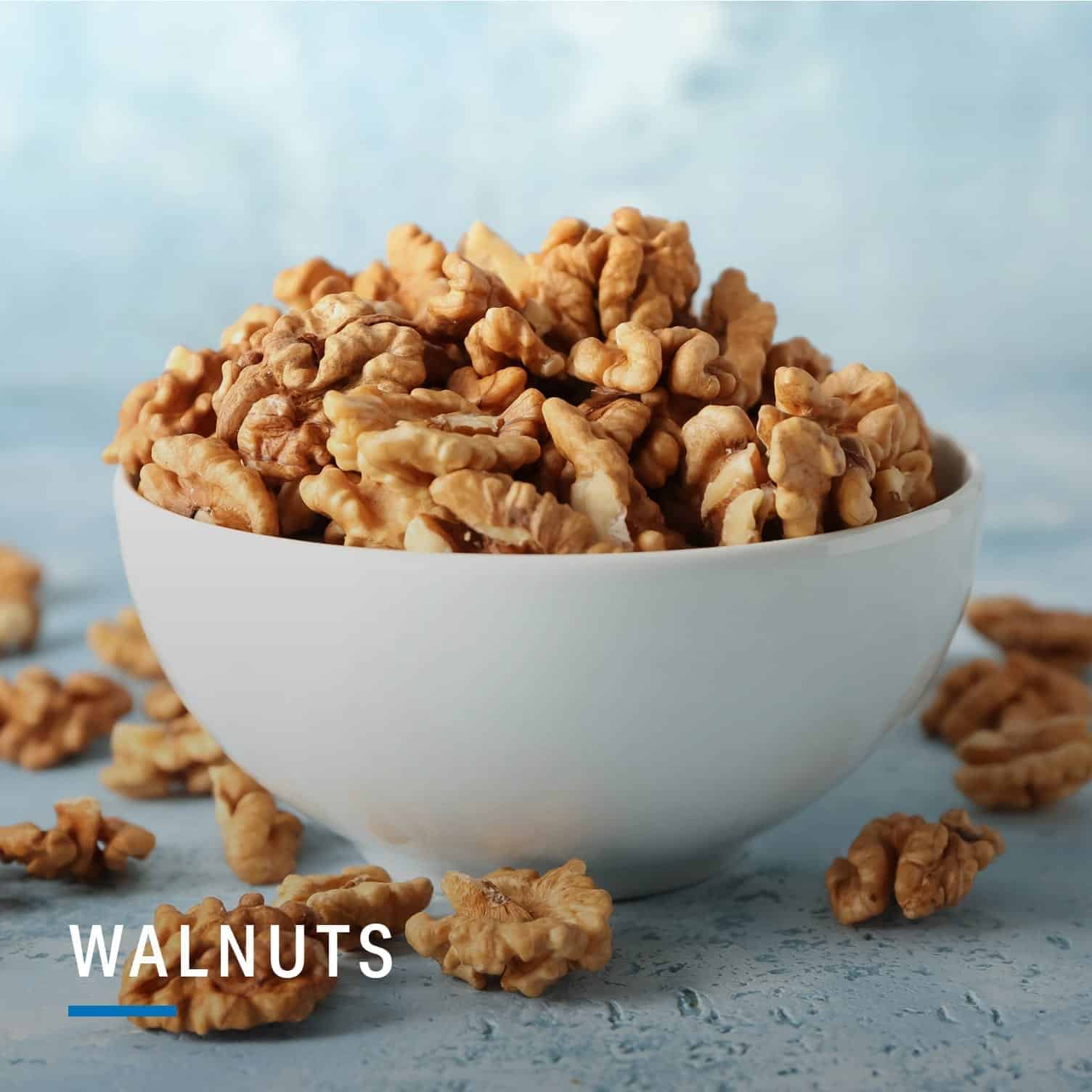
“These crunchy nuts are the highest in omega-3 fatty acids, which can help improve heart health.”
— Goodson
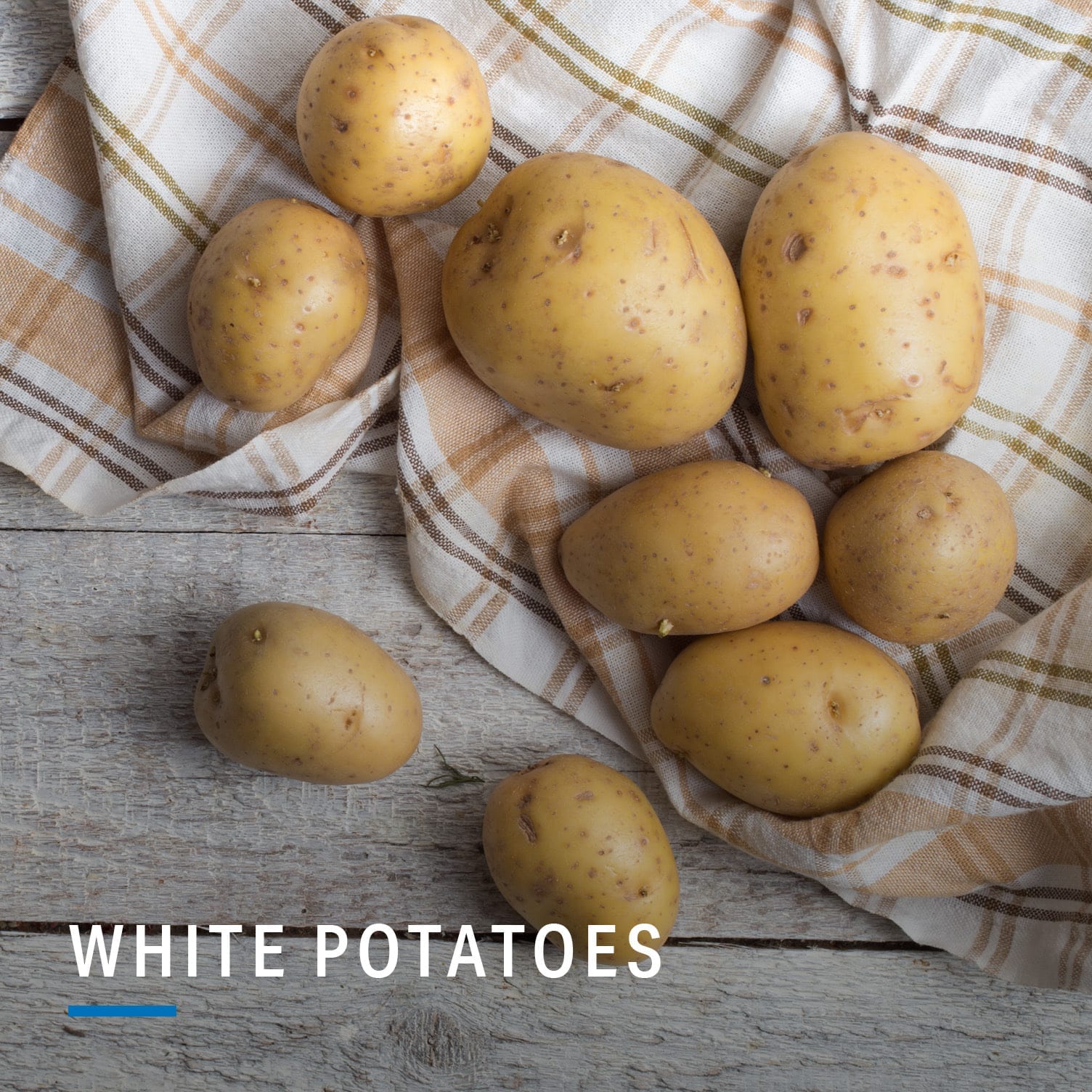
“They’re a good source of fiber and take up a lot of room in the gut to satisfy hunger.”
— Bonci
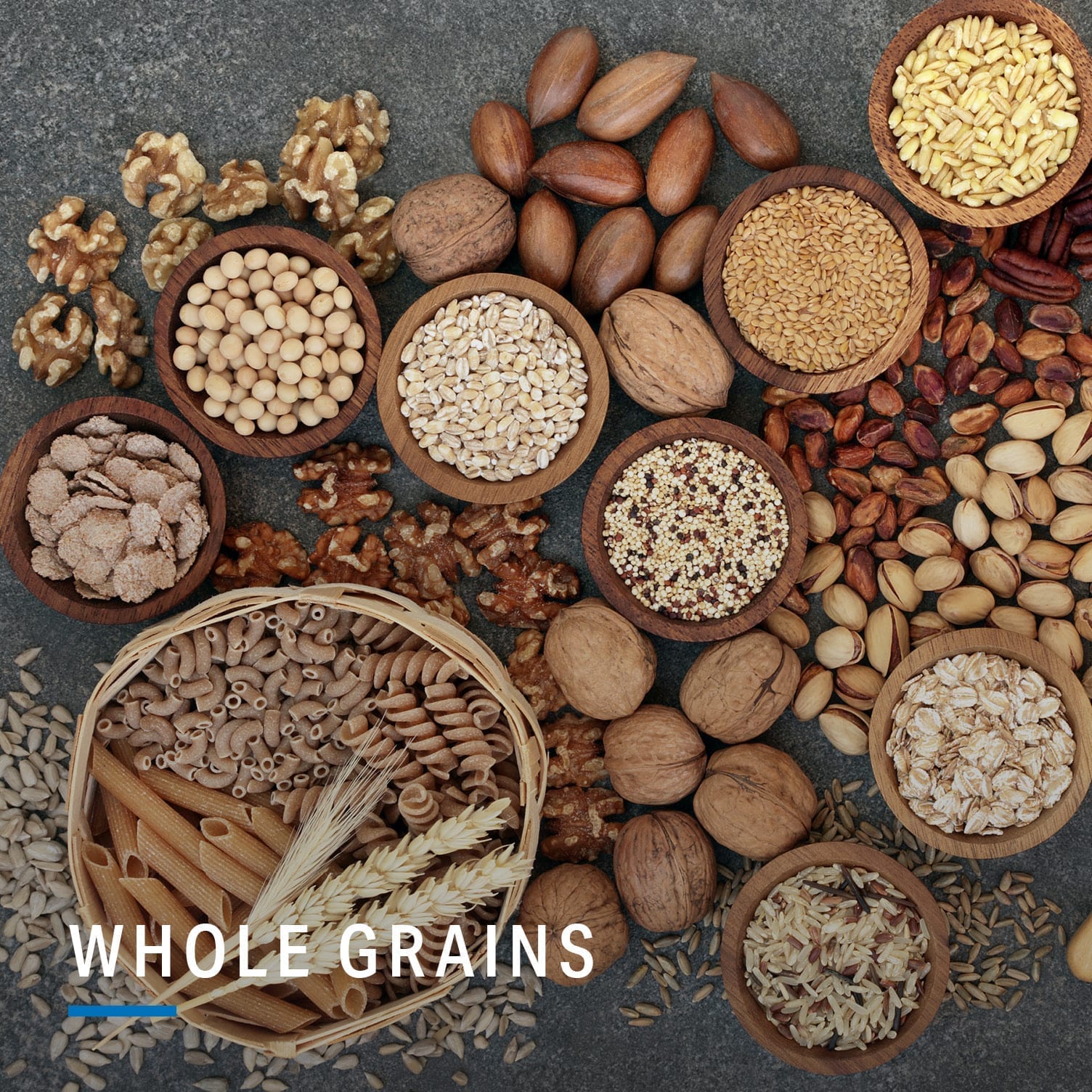
“These are a great addition to help increase the fiber content of your diet, provide B complex vitamins, and give us a quick source of energy. Carbs such as those found in whole grains are the quickest source of energy for our bodies to take in. If you feel an energy slump quickly following a lower-carb meal, one way to prevent it would be to add some whole grains to your meal next time.”
— Macher
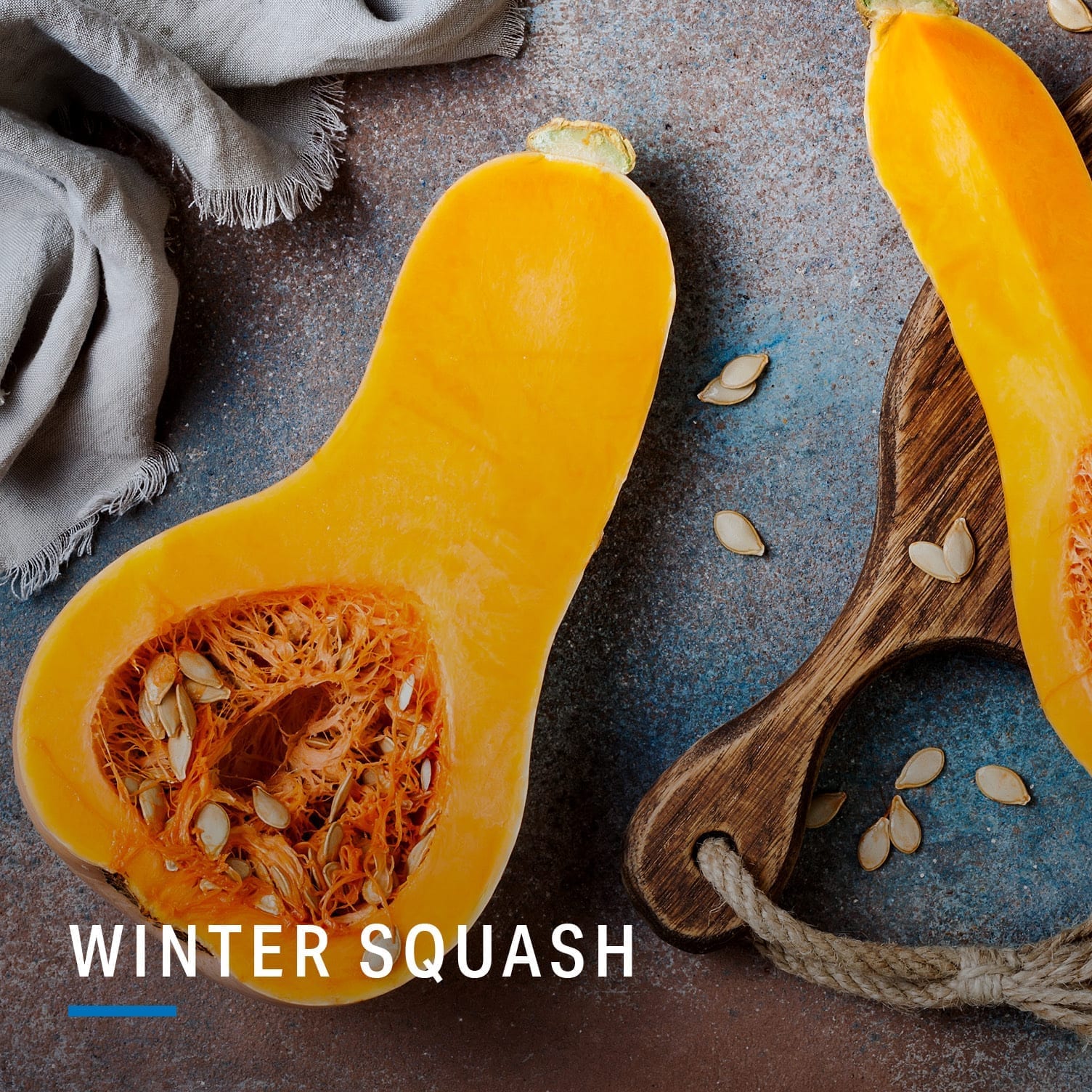
“It has beta-carotene, fiber and a naturally sweet taste! Winter squash varieties like butternut, acorn and kabocha are quintessential fall meal accompaniments. The main macronutrient derived from winter squash is carbohydrate, but it is not problematic for blood-sugar management as it is considered a low-glycemic carbohydrate source because it has plenty of fiber. One cup of cooked squash contains about 18 grams of carbohydrates, which is equivalent to a large slice of whole-grain bread. It’s a nutrient dense starch to add to meals for sustained energy.”
— Wyosnick
Unlock an experience that’s like having a dietitian, trainer and coach at your fingertips. Sign up for Premium for expert guidance and tools to help you reach your personal health goals.
